Speakers and Sessions
The conference began on April 22 at 10:00 AM EDT (2:00 PM GMT). It ran for 24 hours.

Quick Overview
All times Eastern Time Zone (GMT - 4)
| Date / Time |
Speaker |
Session Topic |
| Apr 22 10:00 |
Keynote Speaker Dr. Cleveland-Innes |
The Scope and Nature of Blended Teaching and Learning: Past, Present, Future |
| Apr 22 11:00 |
Dr. Aleksandra Łuczak |
101: The PUSTULKA Testing System |
| Apr 22 11:30 |
Dr. Susan Ruckdeschel, Dr. Aga Palalas, Joe Ganci |
102: Tips on Moving to Online Education and Training |
| Apr 22 12:00 |
Ravindra Yatagiri |
103: Blended Learning at the University of Petroleum and Energy Studies |
| Apr 22 12:30 |
Dr. Liliana Marcela Cuesta Medina |
104: Making the Most out of the Blended World |
| Apr 22 13:30 |
Dr. Wark, Dr. Ramanujan, Apostolos Koutropoulos |
105: The IABL Graduate Student Community |
| Apr 22 14:00 |
Kelvin Thompson |
106: Tools for Thinking About Blended Learning in the US Higher Education Context |
| Apr 22 15:00 |
Vikas Joshi, Rahul Singh |
107: Imperatives for L&D in a Post-Pandemic World |
| Apr 22 16:00 |
Ellen Finkelstein |
108: How to Make Training Stick: The Never-Ending Course |
| Apr 22 16:30 |
Chris Benz |
109: Launching a Public Online Blended Course on a Shoestring |
| Apr 22 17:00 |
Phil Cowcill |
110: Make Your Content Look More Professional |
| Apr 22 18:00 |
Julie Dirksen |
111: Agile Evaluation and the Feedback Loop |
| Apr 22 19:00 |
Joe Ganci |
112: Joe's Top Tips for Adobe Captivate Designers and Developers |
| Apr 22 19:30 |
Peter Vaka |
113: A Blended System of Online, Classroom and Mobile Learning on the Job |
| Apr 22 20:00 |
Kassy Laborie |
114: Interact and Engage! Activities for Spectacular Live Online Training |
| Apr 22 21:00 |
Karen Hyder |
115: Leveraging Adobe Connect for Successful Blended Learning: A Case Study |
| Apr 22 22:00 |
Debbie Richards |
116: Preparing Your Company for an Immersive Learning Program |
| Apr 22 23:00 |
Sherry Nolan Larson |
117: Systems Integration Smoothie |
| Apr 22 23:30 |
Janhavi Padture |
118: Using New-Age Interactions to Engage Learners Remotely |
| Apr 23 0:00 |
Alan Natachu |
201: Unconventional Green Screening |
| Apr 23 0:30 |
Joe Ganci |
202: Joe's Top Tips for Techsmith Camtasia |
| Apr 23 1:00 |
Norazah Nordin |
203: Humanizing Technology in Futuristic Learning: A World with Endless Possibilities |
| Apr 23 2:00 |
Helmi Norman |
204: How to Develop Digital Learning Content using iPads |
| Apr 23 3:00 |
Nor Hafizah Adnan |
205: Simulating Learning Experiences using Augmented Reality with Reality Composer |
| Apr 23 4:00 |
Sally Ganci |
206: Teaching and Conducting Discussions Online |
| Apr 23 4:30 |
Jena Ball |
207: The Avatar in Us All - Lessons from the Virtual Edge |
| Apr 23 5:30 |
Arina Vass |
208: How to Create a Mini-game: PowerPoint vs iSpring |
| Apr 23 6:00 |
Rance Greene |
209: Storytelling: the Learning Tool with No Boundaries |
| Apr 23 6:30 |
Pauline Egoshina |
210: How to Build a Micro Course with iSpring |
| Apr 23 7:00 |
Andrew McGuire |
211: No LMS Required: Using xAPI to Deliver Results |
| Apr 23 7:30 |
Lucie Hammond |
212: How to Integrate Virtual Reality into Your Blended Learning Mix |
| Apr 23 8:00 |
Dr. Susan Ruckdeschel, Chrysoula Lazou |
213: Digital Literacy for Reading Achievement and Responsible Citizenship |
| Apr 23 9:00 |
Ray Jimenez |
214: Two Perspectives on Digital Literacy |
| Apr 23 10:00 |
Various |
Conference Wrap-Up and Announcement |
Keynote
Dr. Cleveland-Innes
The Scope and Nature of Blended Teaching and Learning: Past, Present, Future
April 22 at 10:00 AM EDT (50 minutes) Local Time
|
|
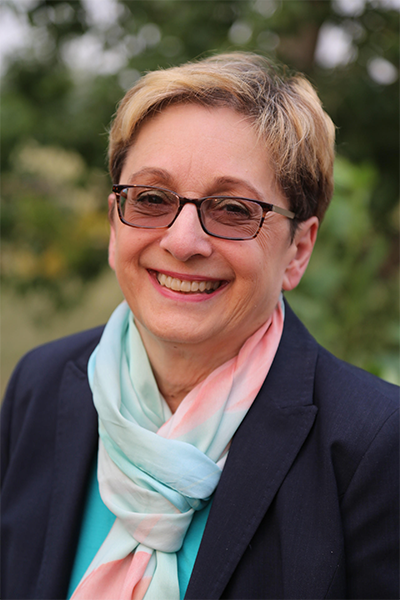 Dr. Cleveland-Innes is Professor and Program Director at Athabasca University in Alberta, Canada. She studied the sociology of education at the University of Calgary where she developed her strong views on the importance of high-quality education in the development of citizenry and healthy societies. Her commitment to open and distance learning is rooted in this perspective; education must be accessible, affordable, and of high quality for everyone, anywhere. Dr. Cleveland-Innes is Professor and Program Director at Athabasca University in Alberta, Canada. She studied the sociology of education at the University of Calgary where she developed her strong views on the importance of high-quality education in the development of citizenry and healthy societies. Her commitment to open and distance learning is rooted in this perspective; education must be accessible, affordable, and of high quality for everyone, anywhere. |
Over the past decades, learning technologies have continued to grow. Opportunities to revise in-person, place-based teaching and learning have increased proportionally. These learning environments, once limited by space, time, and simple technologies, are no longer constrained in the same way. Blended learning is so named to represent this education evolution.
Blended learning, in concept and practice, has also changed over time. Dr. Cleveland-Innes will share her views on the opportunities for, and constraints to, implementing blended learning, past and current, with a view to future possibilities.
|
|
Dr. Aleksandra Łuczak
Session 101: The PUSTULKA Testing System
April 22 at 11:00 AM EDT (25 minutes) Local Time
|
 Aleksandra Łuczak (PhD, MA) is a legal and business English teacher, and the Head of the Centre for Languages at Kozminski University in Warsaw, Poland. A graduate of the Institute of English Studies at Warsaw University from which she also holds a doctorate in applied linguistics, she is also the author of numerous articles on teaching English for Specific and Legal Purposes. Cooperates with language schools and training institutions providing them with teacher trainings. Her interests also include the use of the latest technologies in language teaching. Developer of pustulka.edu.pl – software for language testing. More information on luczak.edu.pl. Aleksandra Łuczak (PhD, MA) is a legal and business English teacher, and the Head of the Centre for Languages at Kozminski University in Warsaw, Poland. A graduate of the Institute of English Studies at Warsaw University from which she also holds a doctorate in applied linguistics, she is also the author of numerous articles on teaching English for Specific and Legal Purposes. Cooperates with language schools and training institutions providing them with teacher trainings. Her interests also include the use of the latest technologies in language teaching. Developer of pustulka.edu.pl – software for language testing. More information on luczak.edu.pl. |
PUSTULKA was developed in 2018 to help develop tests for students studying foreign languages. During this session, Dr Luczak will show how PUSTULKA software has been used successfully and has evolved in the last two years. Thus far, over 1,200 exercises has been created and hundreds of students have been tested. With PUSTULKA. users can be tested on legal and business English, Spanish and Polish. It has received the Kozminski University Rector's Award for innovation in language teaching. |
|
Dr. Susan Ruckdeschel, Dr. Aga Palalas, Joe Ganci
Session 102: Tips on Moving to Online Education and Training
April 22 at 11:30 AM EDT (25 minutes) Local Time
|
|
 Dr. Susan Ruckdeschel has over 25 years of teaching and administrative experience in K-12 public schools, higher education, and private educational institutions. With 16 years of experience in publishing, curriculum writing, instructional design, and online course instruction, she recently founded Blended by Design, a service provider for blended instructional design and K-12 student curriculum. Her doctoral study, completed in 2017, is titled, “The Efficacy of Blended Learning Models of Teacher Professional Development”. Susan also researched and had published “Peer Coaching for Adolescent Writers” (Corwin Press, 2010), a student writing handbook for teachers. Dr. Susan Ruckdeschel has over 25 years of teaching and administrative experience in K-12 public schools, higher education, and private educational institutions. With 16 years of experience in publishing, curriculum writing, instructional design, and online course instruction, she recently founded Blended by Design, a service provider for blended instructional design and K-12 student curriculum. Her doctoral study, completed in 2017, is titled, “The Efficacy of Blended Learning Models of Teacher Professional Development”. Susan also researched and had published “Peer Coaching for Adolescent Writers” (Corwin Press, 2010), a student writing handbook for teachers.
Susan is also founder and former CEO of Literacy Solutions and More, Inc., where she wrote, edited, and led the design of over 400 online courses for school districts and teachers throughout the United States. Her research continues to focus on digital literacy and use of evidence-based practices that impact curriculum and instruction.
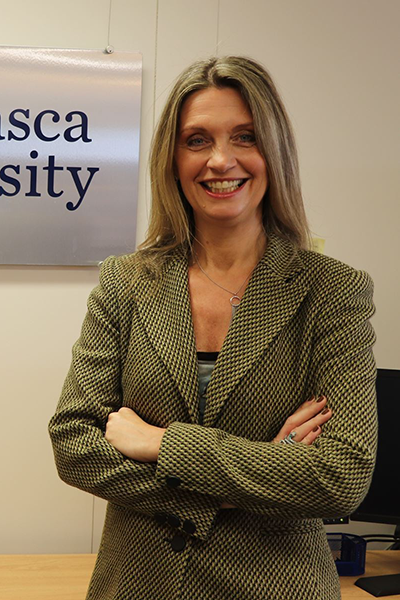 Dr. Agnieszka (Aga) Palalas, long time teacher and researcher of adult education and educational technologies, has focused for over a decade on exploring and developing blended and mobile learning solutions. Dr. Palalas has been involved in numerous blended learning projects in North America, Ghana and India. Amongst other assignments, she has worked as a Mobile Learning Specialist at George Brown College, Toronto, Canada, as well as in a cross-cultural blended learning project involving Ghana, Canada, and the USA. She is currently teaching graduate courses in m-learning, technology-assisted education, and distance education courses at Athabasca University, Canada, and the University of New Mexico, USA. She is also consulting on mobile and blended learning educational interventions. Dr. Agnieszka (Aga) Palalas, long time teacher and researcher of adult education and educational technologies, has focused for over a decade on exploring and developing blended and mobile learning solutions. Dr. Palalas has been involved in numerous blended learning projects in North America, Ghana and India. Amongst other assignments, she has worked as a Mobile Learning Specialist at George Brown College, Toronto, Canada, as well as in a cross-cultural blended learning project involving Ghana, Canada, and the USA. She is currently teaching graduate courses in m-learning, technology-assisted education, and distance education courses at Athabasca University, Canada, and the University of New Mexico, USA. She is also consulting on mobile and blended learning educational interventions.
Dr. Palalas has published a number of articles and book chapters pertaining to mobile and blended learning. She has been active in local and international professional associations and is a regular presenter at international conferences. In her over-20-year experience as an educator, Dr. Palalas has taught in the classroom and online, reviewed, and designed curriculum, provided professional development, worked as a programmer and instructional designer for mobile, online, face-to-face, and blended learning programs. She is excited to be able to contribute to the field of blended learning as a founding director of the International Association for Blended Learning .
 Joe Ganci is owner of eLearningJoe, a custom learning company. Since 1983 he has been involved in every aspect of multimedia and learning development. Joe holds a Computer Science degree, writes books and articles about eLearning, and is widely considered a Learning and eLearning guru. Joe consults worldwide and also teaches at conferences and at client sites. He writes tool reviews and is the recipient of several awards for his work in eLearning, including a Lifetime Achievement Award in 1999 and an eLearning GuildMaster Award in 2013. His mission is to improve the quality of eLearning with practical approaches that work. Joe Ganci is owner of eLearningJoe, a custom learning company. Since 1983 he has been involved in every aspect of multimedia and learning development. Joe holds a Computer Science degree, writes books and articles about eLearning, and is widely considered a Learning and eLearning guru. Joe consults worldwide and also teaches at conferences and at client sites. He writes tool reviews and is the recipient of several awards for his work in eLearning, including a Lifetime Achievement Award in 1999 and an eLearning GuildMaster Award in 2013. His mission is to improve the quality of eLearning with practical approaches that work.
|
Training and learning has been moving online from the classroom for years now, both in live sessions and in self-paced, interactive approaches. Those organizations that had not yet done so suddenly have found themselves in need of moving their training and learning online when the COVID-19 pandemic shut down so many meeting places on university campuses and in corporate learning centers.
In the last few weeks, IABL has been conducting Q&A sessions and offering resources to assist those looking to move online. Having spent decades doing this activity, conducting live sessions and creating robust, interactive learning experiences, we will help you avoid costly mistakes and be very productive in your attempts to do so. Come with your questions!
|
|
|
Ravindra Yatagiri
Session 103: Experience Sharing: Implementation of Blended Learning at the University of Petroleum and Energy Studies
April 22 at 12:00 Noon EDT (25 minutes) Local Time
|
 Ravindra Yatagiri is an expert in implementing IT Technologies with experience of more than 25 years of diversified experience in information technology strategy as well as implementation of a university-wide computing system, operational leadership and technology enabled learning -providing leadership to the University community. He is also a recipient of the Blackboard Catalyst Award for Optimizing Student Experiences in 2018 and Professional Development in 2019. Ravindra Yatagiri is an expert in implementing IT Technologies with experience of more than 25 years of diversified experience in information technology strategy as well as implementation of a university-wide computing system, operational leadership and technology enabled learning -providing leadership to the University community. He is also a recipient of the Blackboard Catalyst Award for Optimizing Student Experiences in 2018 and Professional Development in 2019. |
There is increasing recognition that hybrid, blended and online access for students is an important part of modern educational strategy. In the University of the Future, most courses will be online and delivered at near-zero marginal cost. The key objective was providing 24x7 access to students whenever, wherever and in the manner, they learn best. We believe offering a unique state-of-the-art, cutting edge digital student experience ensures a differentiated experience for our students. Our distinct digital experience, focused on student engagement and success, drives meaningful outcomes to support student achievement and career advancement |
|
Dr. Liliana Marcela Cuesta Medina
Session 104: Making the Most out of the Blended World
April 22 at 12:30 PM EDT (50 minutes) Local Time
|
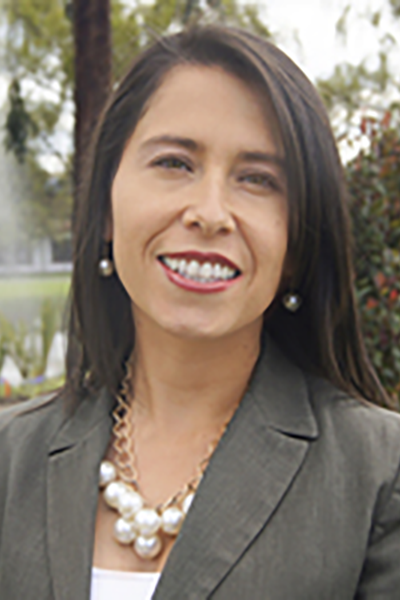 Dr. Liliana Cuesta Medina is an Associate Professor at the Department of Foreign Languages & Cultures, Universidad de La Sabana (Chía, Colombia) in the Master in Language Teaching –programs. She holds a Ph.D. in English Philology from the Universidad Nacional de Educación a Distancia (UNED-Madrid, Spain), a B.A. in English and Spanish from the Universidad Pedagógica Nacional (Bogotá, Colombia), and a Specialization in Applied Linguistics to the Teaching of English from the Universidad La Gran Colombia (Bogotá, Colombia). She has been involved in national and international teacher development programs, mainly in EFL, e-learning, and e-tutoring. Her research areas include CALL, CLIL, academic writing, teacher education, cyberbullying, and learners’ self-regulation in blended/virtual learning environments, on which topics she has published in a number of indexed journals and conference proceedings. Dr. Liliana Cuesta Medina is an Associate Professor at the Department of Foreign Languages & Cultures, Universidad de La Sabana (Chía, Colombia) in the Master in Language Teaching –programs. She holds a Ph.D. in English Philology from the Universidad Nacional de Educación a Distancia (UNED-Madrid, Spain), a B.A. in English and Spanish from the Universidad Pedagógica Nacional (Bogotá, Colombia), and a Specialization in Applied Linguistics to the Teaching of English from the Universidad La Gran Colombia (Bogotá, Colombia). She has been involved in national and international teacher development programs, mainly in EFL, e-learning, and e-tutoring. Her research areas include CALL, CLIL, academic writing, teacher education, cyberbullying, and learners’ self-regulation in blended/virtual learning environments, on which topics she has published in a number of indexed journals and conference proceedings. |
This session addresses the changing nature of blended learning (BL)and draws on various pedagogical considerations emerged both from the research literature and the analysis of effective practices that have taken place in higher education contexts. The session will offer participants a suitable room to discuss specific challenges and opportunities concerning the design, development, and assessment practices in BL scenarios aiming at a sound quest for effective instructional, organizational, and strategic decision making. In addition to this, the session is intended to scaffold and support educators, learners, and other agents in the planning of the blended learning initiatives to ensure quality and sustainability across time. |
|
Dr. Norine Wark, Dr. Shamini Ramanujan, Apostolos Koutropoulos
Session 105: The IABL Graduate Student Community
April 22 at 1:30 PM EDT (25 minutes) Local Time
|
 Dr. Norine Wark, Dr. Shamini Ramanujan, and Apostolos Koutropoulos (“AK”) are IABL Graduate Student Committee Co-Chairs. Norine and Shamini are graduates and AK is currently a doctoral student of the Athabasca University (AU) Doctor of Education program. Norine is a Member-at-Large on the IABL Board of Directors and a researcher at AU. She received the 2019 Governor General of Canada Gold Award for her work on emerging pedagogies and emerging technologies. Norine has taught at all levels of education in face-to-face, online, and blended learning contexts since the 1980s. Shamini is the Founder and CEO of Strategic HR International Inc. Shamini has designed curriculum, facilitated programs, provided strategic organizational development counsel in corporate and public service sectors using face-to-face, online, and blended learning methods since the 1990s. AK is an alumnus of the University of Massachusetts Boston, with degrees in computer science, business administration, information technology, instructional design, and applied linguistics. He is currently the program manager for the Applied Linguistics online MA program at UMass Boston. He has been engaged with the topic of blended learning since 2008. Dr. Norine Wark, Dr. Shamini Ramanujan, and Apostolos Koutropoulos (“AK”) are IABL Graduate Student Committee Co-Chairs. Norine and Shamini are graduates and AK is currently a doctoral student of the Athabasca University (AU) Doctor of Education program. Norine is a Member-at-Large on the IABL Board of Directors and a researcher at AU. She received the 2019 Governor General of Canada Gold Award for her work on emerging pedagogies and emerging technologies. Norine has taught at all levels of education in face-to-face, online, and blended learning contexts since the 1980s. Shamini is the Founder and CEO of Strategic HR International Inc. Shamini has designed curriculum, facilitated programs, provided strategic organizational development counsel in corporate and public service sectors using face-to-face, online, and blended learning methods since the 1990s. AK is an alumnus of the University of Massachusetts Boston, with degrees in computer science, business administration, information technology, instructional design, and applied linguistics. He is currently the program manager for the Applied Linguistics online MA program at UMass Boston. He has been engaged with the topic of blended learning since 2008. |
Welcome to the IABL Graduate Student Community virtual meet and greet session! All virtual conference attendees are cordially invited to join this session, especially those who are graduates, recent graduates, or work with graduate level students. This session opens with a brief introduction to the community, followed by a short summary of our recent and current activities. Attendees are then invited to participate in a discussion on how the community might best serve us, what contributions we may be able to offer to the community, and how to build this supportive and vibrant community. |
|
Kelvin Thompson
Session 106: Tools for Thinking About Blended Learning in the US Higher Education Context
April 22 at 2:00 PM EDT (50 minutes) Local Time
|
|
 Dr. Kelvin Thompson works to make online and blended learning even better a little bit every day. Kelvin writes, speaks, and consults within the US higher education community. He has also created a number of open resources for use by all based upon his work at the University of Central Florida (e.g., the BlendKit Course, the Teaching Online Pedagogical Repository; the Faculty Seminars in Online Teaching). He also co-hosts the popular “TOPcast: The Teaching Online Podcast.” As executive director of UCF’s Center for Distributed Learning, he assures the successful operation and strategic goal meeting of this 80 member organization. Dr. Kelvin Thompson works to make online and blended learning even better a little bit every day. Kelvin writes, speaks, and consults within the US higher education community. He has also created a number of open resources for use by all based upon his work at the University of Central Florida (e.g., the BlendKit Course, the Teaching Online Pedagogical Repository; the Faculty Seminars in Online Teaching). He also co-hosts the popular “TOPcast: The Teaching Online Podcast.” As executive director of UCF’s Center for Distributed Learning, he assures the successful operation and strategic goal meeting of this 80 member organization.
|
The affordances of blended learning are often touted, but how these benefits be achieved for higher education students? Several “thinking tools” for blended learning in the US higher education context will be shared, and participants will be encouraged to reflect upon practical questions such as: “Am I blending already? What else can I do? Where do I start?” |
|
Vikas Joshi, Rahul Singh
Session 107: Imperatives for L&D in a Post-Pandemic World
April 22 at 3:00 PM EDT (50 minutes) Local Time
|
|
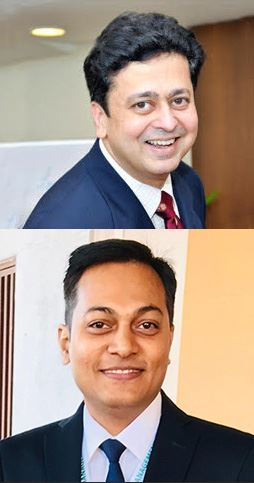 Vikas Joshi is a business leader who is passionate about product development and technology entrepreneurship. His mission is to help create software products that make a difference. A key part of that mission is to inspire tech professionals and entrepreneurs to grow and develop. Vikas leads Harbinger Group, a reputed software company with a global customer base. Harbinger Group helps tech companies in building enterprise software products. For e-learning users, the firm markets its own innovative products and provides custom content solutions. Vikas holds two US patents for his inventions at Harbinger in education technology. Vikas Joshi is a business leader who is passionate about product development and technology entrepreneurship. His mission is to help create software products that make a difference. A key part of that mission is to inspire tech professionals and entrepreneurs to grow and develop. Vikas leads Harbinger Group, a reputed software company with a global customer base. Harbinger Group helps tech companies in building enterprise software products. For e-learning users, the firm markets its own innovative products and provides custom content solutions. Vikas holds two US patents for his inventions at Harbinger in education technology.
Rahul Singh is a digital learning enthusiast and is passionate about helping organizations and leaders solve business challenges through intervention of learning technologies. In his career span of over 13 years in the digital learning space, he has helped a host of global organizations cutting across industry verticals in implementing a myriad of new initiatives around their digital learning strategy. Rahul frequently blogs on a variety of topics; sharing his experiences and thoughts as a way to give back to the learning and development community.
|
Throughout the world, the evolving COVID-19 pandemic has created unprecedented humanitarian, economic, and psychological demands on our society and businesses. As champions of employee development, L&D leaders must re-evaluate their role in this rapidly changing scenario. How has the workplace changed? Why is it important to engage employees differently? What does training look like in the new world? How to sustain and leverage organizational culture?
In this session, workplace learning experts Rahul Ranjan Singh and Vikas Joshi lead you through and exploration of the new landscape.
Highlights:
- Supporting business continuity: Implications of work from home
- Online employee engagement: How to position learning as an engagement tool
- Intelligent nudges: Placing short and relevant learning interventions in the flow of work
- Sustaining culture: The CLO’s challenge in a multi-location workforce
|
|
Ellen Finkelstein
Session 108: How to Make Training Stick: The Never-Ending Course
April 22 at 4:00 PM EDT (25 minutes) Local Time
|
|
 Ellen is a PowerPoint MVP (Most Valuable Professional, a Microsoft award), one of only 18 in the United States. Her well-known website at www.ellenfinkelstein.com offers many PowerPoint tips and the PowerPoint Tips Newsletter. She specializes in training speakers and presenters to convert Death by PowerPoint to Life by PowerPoint; communicate clearly and powerfully; and design high-impact, persuasive and professional-looking slides. Ellen is a PowerPoint MVP (Most Valuable Professional, a Microsoft award), one of only 18 in the United States. Her well-known website at www.ellenfinkelstein.com offers many PowerPoint tips and the PowerPoint Tips Newsletter. She specializes in training speakers and presenters to convert Death by PowerPoint to Life by PowerPoint; communicate clearly and powerfully; and design high-impact, persuasive and professional-looking slides.
She is an Amazon bestselling author. Some of her books are PowerPoint for Teachers: Dynamic Presentations and Interactive Classroom Projects, How to Do Everything with PowerPoint, and her e-book, Slide Design for Non-Designers.
Her courses include High-Persuasion Presentation Program and Create an Outstanding Presentation Self-Study Course. You can find those as well as other courses and books in her e-store.
Ellen Finkelstein has done training for Citrix, Brainshark, Disney, Microsoft, Pennsylvania State Education Association, Maharishi International University, State University of New York at Buffalo, State University of Illinois, several law firms, Vastu Homes, and others. She does on-site training, 1-on-1 virtual coaching/training, and webinars. Her specialty is helping speakers and trainers create clear, powerful, and persuasive presentations. Learn about her training programs at www.ellenfinkelstein.com.
|
As a trainer, do you find that implementation of what you teach is the downfall of a lot of training? According to the ASTD, 90% of what trainees learn is lost by the time they return to the job. How do you help make the learning stick?
Enter the Never-Ending Course. In this session, Ellen Finkelstein will show you how you can start with a live course (whether in person or synchronous online) and then…
- Repurpose your course materials so they are always available to trainees
- Use your LMS, a wiki, or online Knowledge Base as a permanent reference for trainees
- Continue to involve the trainer or SME long after the course ends
- Include managers so they can support the learning and implementation
- Use the after-the-course infrastructure to improve the course the next time
- You’ll come away with a new blueprint for structuring training.
|
|
Chris Benz
Session 109: Launching a Public Online Blended Course on a Shoestring
April 22 at 4:30 PM EDT (25 minutes) Local Time
|
|
 Chris Benz designs and leads the development of technical information to be used and reused effectively and efficiently across instructor-led training, self-paced eLearning, product documentation, help systems, websites, and marketing. Chris Benz designs and leads the development of technical information to be used and reused effectively and efficiently across instructor-led training, self-paced eLearning, product documentation, help systems, websites, and marketing.
As part of The Deeper Learning At Work Group, Chris is currently working with other training and instructional-design experts to develop and produce blended courses on using research-based techniques to drive learning for effective application on the job. He previously served as the director of online events for The eLearning Guild, where he designed and led the production of hundreds of webinars and online-conference sessions.
Chris is an Associate Fellow of the Society for Technical Communication (STC) and co-founder of Duke University’s Certificate in Technical Communication program. He has authored almost a dozen retail-market books, one of which won Best of Show in STC’s International Technical Publication Competition.
|
Do you have personal or professional knowledge you’d like to share with the public? Your purposes might include monetizing your knowledge, marketing yourself or your business, promoting new ideas, or providing a public service. But without the technical and monetary backing of an employer or other organization, how do you market your course, collect any registration fees, deliver content, and track participants' progress--on a minimal budget?
In this case-study session, you’ll follow the journey of training and instructional-design (ID) researcher Patti Shank, VILT expert Karen Hyder, and project manager and business enabler Chris Benz as we launch our first public online blended course on a very small budget. Patti had spent thousands of hours reviewing research on effective workplace-training tactics, and wanted to monetize her work by teaching other trainers and IDs how to apply those tactics. Working collectively as The Deeper Learning At Work Group, our goal was to deliver evidence-based training/ID courses that eliminated the need for instructor and participant travel while achieving learning that was as good as or better than in the physical classroom--for a lot less money. Our first course focused on writing valid and reliable multiple-choice questions, a critical skill many trainers and IDs do not have, and we are developing many more courses that use and teach Deeper Learning At Work tactics.
In this session, you’ll learn:
- How we build the Deeper Learning At Work brand and market our courses through content marketing, presentations, social media, and business partnerships--for free
- About the low-cost and free tools we use to host self-paced content and discussions, collect registration fees, meet with participants in a live virtual classroom, and track participants' progress throughout the course
- How we use Deeper Learning At Work tactics to determine the need for, then design and develop, courses
|
|
Phil Cowcill
Session 110: Make Your Content Look More Professional
April 22 at 5:00 PM EDT (50 minutes) Local Time
|
 Phil Cowcill is senior eLearning specialist at PJ Rules. He started his career in 1983 when he was hired as a technologist at a local college. In 1985 he joined a team to develop Canada's first Interactive Videodisc. He started teaching part-time in 1989, moving to full-time in 1995. He led his class to build one of the first news websites that streamed video in 1996. In 2011 he launched the very first dedicated mobile application development program. Phil retired from full-time teaching in 2015 and moved to working as a contractor with the Department of National Defence as a senior eLearning specialist. Phil Cowcill is senior eLearning specialist at PJ Rules. He started his career in 1983 when he was hired as a technologist at a local college. In 1985 he joined a team to develop Canada's first Interactive Videodisc. He started teaching part-time in 1989, moving to full-time in 1995. He led his class to build one of the first news websites that streamed video in 1996. In 2011 he launched the very first dedicated mobile application development program. Phil retired from full-time teaching in 2015 and moved to working as a contractor with the Department of National Defence as a senior eLearning specialist. |
How would you fair if you were compared to an Olympic athlete? Probably not too well. When you think about your learners going through a LMS system and accessing your course material, how good is to compared to the games and other professional sites? In this session you pick up some quick tips on how you can quickly punch up your images, and make your content look more professional. You'll also learn some significant time saving tricks when fixing images. |
|
Julie Dirksen
Session 111: Agile Evaluation and the Feedback Loop
April 22 at 6:00 PM EDT (50 minutes) Local Time
|
 Julie Dirksen is the author of the book Design For How People Learn and an independent consultant and instructional designer who has more than 20 years’ experience creating highly interactive e-Learning experiences for clients ranging from Fortune 500 companies to innovative technology startups to major grant-funded research initiatives. Her focus has been on utilizing the disciplines of educational psychology, neuroscience, change management and persuasive technology to promote and support the improvement of peoples’ lives through sustainable long-term learning and behavioral change. She holds an M.S. degree in Instructional Systems Technology from Indiana University and has also been an adjunct faculty member at the Minneapolis College of Art and Design. She’s happiest whenever she gets to learn something new and you can find her online at www.usablelearning.com. Julie Dirksen is the author of the book Design For How People Learn and an independent consultant and instructional designer who has more than 20 years’ experience creating highly interactive e-Learning experiences for clients ranging from Fortune 500 companies to innovative technology startups to major grant-funded research initiatives. Her focus has been on utilizing the disciplines of educational psychology, neuroscience, change management and persuasive technology to promote and support the improvement of peoples’ lives through sustainable long-term learning and behavioral change. She holds an M.S. degree in Instructional Systems Technology from Indiana University and has also been an adjunct faculty member at the Minneapolis College of Art and Design. She’s happiest whenever she gets to learn something new and you can find her online at www.usablelearning.com. |
Learning and development has a broken feedback loop, and it's holding us back as a field. Because we usually can't see our products being used, we lack the most basic information necessary to improve what we do. Traditional evaluation at best is costly and difficult to measure, and at worst ignored altogether, or implemented in such a superficial way that it's meaningless. Even good evaluation measures are not granular enough to inform future design decisions.
Agile evaluation methods will look at what we can learn from the field of software usability, and what practices we need to add to that for ensure successful blended learning design. Practitioners need to ensure they also have a feedback loop in order to move forward as designers and developers of digital solutions.
|
|
Joe Ganci
Session 112: Joe's Top Tips for Adobe Captivate Designers and Developers
April 22 at 7:00 PM EDT (25 minutes) Local Time
|
|

Joe Ganci is owner of eLearningJoe, a custom learning company. Since 1983 he has been involved in every aspect of multimedia and learning development. Joe holds a Computer Science degree, writes books and articles about eLearning, and is widely considered a Learning and eLearning guru. Joe consults worldwide and also teaches at conferences and at client sites. He writes tool reviews and is the recipient of several awards for his work in eLearning, including a Lifetime Achievement Award in 1999 and an eLearning GuildMaster Award in 2013. His mission is to improve the quality of eLearning with practical approaches that work.

|
It's easy to get started with Adobe Captivate but there's a lot of power under the hood! Some features are not well known but the more you know them, the better your instructional design will be. Using the layers of sophistication of these features means you will save a lot of time, deliver more engaging and personalized learning, and be able to tap into resources more easily. Joe Ganci, a Certified Adobe Captivate expert, and Dr. Pooja Jaisingh, an Adobe Evangelist, will take you through the Captivate features you need to make the most of this powerful tool. These are the kinds of features that experts use all the time and novices tend not to know, allowing experts to do more in less time and get all the praise. You deserve that praise too, don't you?
|
|
Peter Vaka
Session 113: Moving Training into the Workplace: a Blended System of Online, Classroom and Mobile Learning on the Job
April 22 at 7:30 PM EDT (25 minutes) Local Time
|
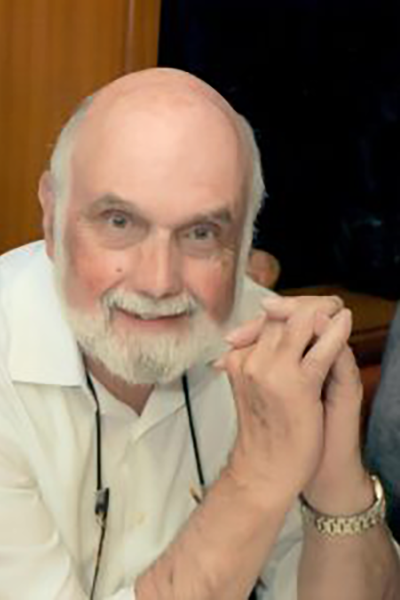 Peter Vaka started his career in online learning developing courses for the federal government. He helped pioneer courses for both soft and hard skills including an online course that taught technicians how to solder circuits. Founder of the Learning Retention Company for continuous learning. Currently he is the Chief Learning Officer for Verizon Network Services. Peter Vaka started his career in online learning developing courses for the federal government. He helped pioneer courses for both soft and hard skills including an online course that taught technicians how to solder circuits. Founder of the Learning Retention Company for continuous learning. Currently he is the Chief Learning Officer for Verizon Network Services. |
Busy schedules and work related demands present new challenges to professional trainers. Although the need for training has never been greater, finding the time away from the job for employees to participate in scheduled classroom training is no longer practical. Online learning has stepped up to fill the void but still requires the learner to set time aside to go through a course. Most online courses are all inclusive and cover a wide range of related subjects that may or may not be needed at that time. The answer is to bring continuous learning to the learner where they spend their time, at work. To be effective training must be relevant and available when needed. Technology now puts training in the hands of the learner over a host of mobile devices. Scenario based training can be delivered with immediate feedback and reinforcement to change behavior and form new habits. Learn how to apply this new strategy and get results using what is already at hand. |
|
Kassy Laborie
Session 114: Interact and Engage! Activities for Spectacular Live Online Training
April 22 at 8:00 PM EDT (50 minutes) Local Time
|
|
 Kassy LaBorie is the principal consultant at Kassy LaBorie Consulting, LLC. She is a speaker, instructional designer, classroom facilitator, and author who specializes in virtual learning, teams, and live online technology. Kassy is passionate about helping organizations, learning teams, and training professionals successfully move to the virtual environment. Kassy LaBorie is the principal consultant at Kassy LaBorie Consulting, LLC. She is a speaker, instructional designer, classroom facilitator, and author who specializes in virtual learning, teams, and live online technology. Kassy is passionate about helping organizations, learning teams, and training professionals successfully move to the virtual environment.
In her previous role at Dale Carnegie Training, she was the director of virtual training services, a consultancy that partners with organizations to help them develop successful online training strategies. Kassy also served as the product design architect responsible for developing the company’s live online training product and experience. Prior to this, she was an independent master virtual trainer, a Microsoft software trainer, and a senior trainer at WebEx, where she helped build and deliver training at the WebEx University.
Kassy is the co-author of Interact and Engage! 50+ Activities for Virtual Training, Meetings, and Webinars. A frequent speaker at industry conferences since 2006, she has presented at Training Magazine events including their yearly conference and Online Learning Conferences, Chief Learning Officer symposiums, The Virtual Learning Show, ATD’s TechKnowledge and International Conference & Exposition, as well as many local ATD Chapter events.
Connect with Kassy on LinkedIn, Twitter, and her website at KassyConsulting.com
|
Whether it's an online meeting, a presentation via webinar, or live online training, engagement is the main question on everyone's mind. Will it be worth my time to attend or will it be an opportunity to check email instead? Live online meeting technology is powerful and has made it easy to connect with people from anywhere in the world at any time, yet we often still struggle with getting everyone to interact.
Interaction is the answer to successful engagement and using the features of the platform is the answer to interaction. However, the features alone do not engage the participants. It is what you choose to do with those features that will make the difference in your next virtual training, webinar, or meeting. Learn what you can do to be successful in the virtual environment and avoid everyone asking for a recording or a copy of the slides five minutes into your next virtual training.
The speaker will discuss design considerations for WebEx, Zoom, Adobe Connect, other platforms, but will deliver this session live online using Zoom.
- Describe how engaging live online training activities build virtual participant engagement.
- Determine the appropriate level of interaction to create effective live online training.
- Analyze activities for specific engagement techniques to apply to your own learning design.
- Use a checklist of platform features to optimize the investment in your virtual meeting technology.
|
|
Karen Hyder
Session 115: Leveraging Adobe Connect for Successful Blended Learning: A Case Study
April 22 at 9:00 PM EDT (50 minutes) Local Time
|
|
 Karen Hyder, online event producer and speaker coach at Kaleidoscope Training and Consulting, has been teaching about technology since 1991, when she delivered instructor-led software courses for Logical Operations. Karen Hyder, online event producer and speaker coach at Kaleidoscope Training and Consulting, has been teaching about technology since 1991, when she delivered instructor-led software courses for Logical Operations.
She was promoted to director of trainer development, helping trainers improve skills and earn certifications. In 1999 she created a course for trainers using virtual classrooms, and helped launch The eLearning Guild Online Forums in 2004 and was honored in 2017 with the Guild Master Award.
Currently, Karen provides coaching and production support for a series of online courses at Hearing First, a not-for-profit that serves listening and spoken-language (LSL) professionals and parents of children who are deaf or hard of hearing.
|
Karen Hyder has been collaborating with Hearing First LLC since 2016 to develop and guide delivery of a series of online courses that support listening and spoken-language (LSL) professionals and parents of children who are deaf or hard of hearing.
In this session, Karen – who provides ongoing coaching and production support to Hearing First – will describe how using Adobe Connect to adopt and deliver an evidence-based, flipped classroom model – also called a blended-learning model – has enabled Hearing First to meet the challenge of improving learning outcomes.
Participants will learn how Hearing First leveraged an online community platform for independent learning assignments, recordings, and resources, and facilitated virtual-classroom sessions to engage with others and apply new skills. Karen will share the failures and the genius of the design and production plans; insights into Adobe Connect and other software tools; and methods for preparing and motivating subject-matter experts and participants.
Participants in this session also will explore:
Technology discussed: Adobe Connect, Telligent, Zoom, Google Docs, Dropbox
|
|
Debbie Richards
Session 116: Preparing Your Company for an Immersive Learning Program
April 22 at 10:00 PM EDT (50 minutes) Local Time
|
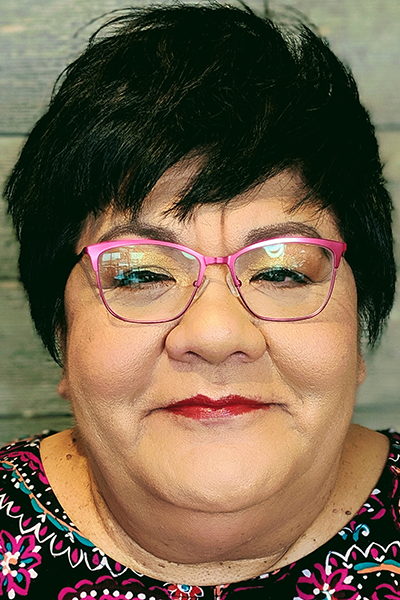 Debbie Richards, the president of Creative Interactive Ideas, was named one of the most influential people in corporate eLearning for 2018. She works with organizations to design, develop, and deliver immersive learning programs with measurable impact. Passionate about working with and mentoring other learning professionals, Debbie is the president of the Association for Talent Development Houston Chapter and a past ATD national adviser for chapters. She is also the author of Seeing the Possibilities With Augmented Reality, an ATD TD at Work publication. Debbie Richards, the president of Creative Interactive Ideas, was named one of the most influential people in corporate eLearning for 2018. She works with organizations to design, develop, and deliver immersive learning programs with measurable impact. Passionate about working with and mentoring other learning professionals, Debbie is the president of the Association for Talent Development Houston Chapter and a past ATD national adviser for chapters. She is also the author of Seeing the Possibilities With Augmented Reality, an ATD TD at Work publication. |
In this session, you'll explore the steps you'll want to take in order to successfully launch an immersive learning program at your organization, including how to get buy-in and acceptance by business units. Explore steps to take in order to successfully launch an AR/VR program at your organization, including how to get buy-in and acceptance by business units. You'll find out about creating a solid business case as a reason to use AR/VR, and how a business partner proposing to use AR/VR to solve a particular challenge can make it easier to implement AR/VR solutions. You'll then look at how to match the AR/VR use case with your business's core values to ensure people understand how specifically this new technology is going to impact the organization. You'll discover strategies for finding appropriate business cases and how to work with an internal team to plan, build, implement, and maintain an AR/VR project. |
|
Sherry Nolan Larson
Session 117: Systems Integration Smoothie
April 22 at 11:00 PM EDT (25 minutes) Local Time
|
|
 Sherry is a Senior Learning and Development consultant with broad-based skills designing, developing, managing and delivering learning solutions for large-scale projects in these industries: Agriculture, Aviation, Construction, Financial Services, Government, Health Care, Industrial Automation and Services, Information Technology, Retail, Supply Chain Management and Telecommunications. Sherry is a Senior Learning and Development consultant with broad-based skills designing, developing, managing and delivering learning solutions for large-scale projects in these industries: Agriculture, Aviation, Construction, Financial Services, Government, Health Care, Industrial Automation and Services, Information Technology, Retail, Supply Chain Management and Telecommunications.
Her specialties include: Team Leadership, Customer Relationship Management, Instructional Design, Course Development, Business and Process Analysis and Project Management.
|
Learn how a disparate team of L+D employees and contractors are using successfully using AGILE, a Minimum Viable Product (MVP) approach and blended learning experiences for a complex systems integration project to ensure that all employees are ready for Day 1 of system go-live.
After attending this session, you’ll be able to:
- Identify key elements in setting an AGILE L+D team up for success
- Define MVP and its role in quickly developing effective training
- Describe methods for soliciting actionable feedback from Subject Matter Experts (SMEs)
- List the tools used to create the blended learning experience
|
|
Janhavi Padture
Session 118: Using New-Age Interactions to Engage Learners Remotely
April 22 at 11:30 PM EDT (25 minutes) Local Time
|
 Janhavi Padture has over 20 years of experience in the Information Technology field with a focus on web development, project management, and marketing. At Harbinger, Janhavi has been involved in strategy, marketing, CRM and new product initiatives. Janhavi has spoken at various industry conferences (including AICC, ASTD, eLearning Guild) and local groups on topics pertaining to online learning. Janhavi holds a Masters degree in Computer Science and an MBA. At the moment, Janhavi works closely with Raptivity customers to bring their voice into the company, helping the product and business strategy to evolve. Janhavi Padture has over 20 years of experience in the Information Technology field with a focus on web development, project management, and marketing. At Harbinger, Janhavi has been involved in strategy, marketing, CRM and new product initiatives. Janhavi has spoken at various industry conferences (including AICC, ASTD, eLearning Guild) and local groups on topics pertaining to online learning. Janhavi holds a Masters degree in Computer Science and an MBA. At the moment, Janhavi works closely with Raptivity customers to bring their voice into the company, helping the product and business strategy to evolve. |
The modern-day workforce and learners are hard to engage. It is even harder to keep them focused, when they are working remotely. You put in all possible efforts to make your training and courses look amazing and learners are still not engaged. As an educator or L&D stakeholder, you are constantly on the lookout for a solution to address the above challenge. Join this session, to know how new-age, modern-design style interactions can help you sail through this situation effortlessly. |
|
Alan Natachu
Session 201: Unconventional Green Screening
April 23 at 12:00 Midnight EDT (25 minutes) Local Time
|
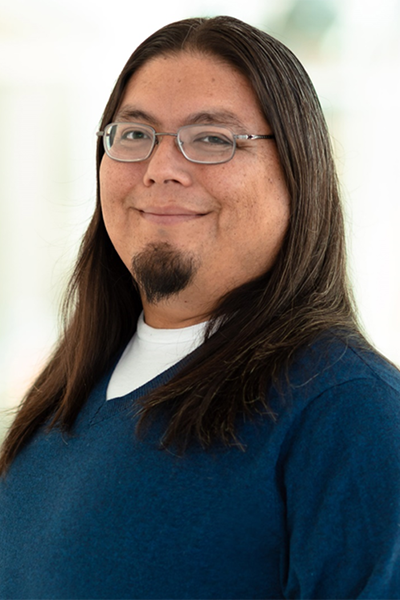 Alan Natachu is a Learning Experience Designer at Exact Sciences. He shifted from an artist career, working with the likes of ABC/Disney and the Smithsonian, to a learning and development career when he was hired as a creative (aka technology trainer) at Apple,. He then spent a decade helping Madison College faculty enhance their classroom (face to face, distance and virtual) experiences using systems like Telepresence, Webex Teams and Virtual Reality. He now is creating new experiences with Exact Sciences, an international biomedical company at the forefront of life-changing innovations in cancer diagnostics and precision oncology. Alan Natachu is a Learning Experience Designer at Exact Sciences. He shifted from an artist career, working with the likes of ABC/Disney and the Smithsonian, to a learning and development career when he was hired as a creative (aka technology trainer) at Apple,. He then spent a decade helping Madison College faculty enhance their classroom (face to face, distance and virtual) experiences using systems like Telepresence, Webex Teams and Virtual Reality. He now is creating new experiences with Exact Sciences, an international biomedical company at the forefront of life-changing innovations in cancer diagnostics and precision oncology. |
Within the last 10 years, green screen technology has been made affordable and available to all media creators. Traditional green screen technique involves, at the minimum, a camera and a green background. This session is not about the traditional green screen technique. This session will show you different tools that leverage the green screen technique, but in a different way. We’ll cover a brief history of green screen, go over free & inexpensive tools that allow you to create “green screen video,” how to create motion graphics with the green screen technique, and how to apply these techniques in your eLearning media development. |
|
Joe Ganci
Session 202: Joe's Top Tips for Techsmith Camtasia
April 23 at 12:30 AM EDT (25 minutes) Local Time
|
 Joe Ganci is owner of eLearningJoe, a custom learning company. Since 1983 he has been involved in every aspect of multimedia and learning development. Joe holds a ComSci degree, writes books and articles about eLearning, and is widely considered an eLearning development guru. Joe consults worldwide and also teaches at conferences and at client sites. Joe writes tool reviews and is the recipient of several awards for his work in eLearning, including a Lifetime Achievement Award in 1999 and an eLearning GuildMaster Award in 2013. His mission is to improve the quality of eLearning with practical approaches that work. Joe Ganci is owner of eLearningJoe, a custom learning company. Since 1983 he has been involved in every aspect of multimedia and learning development. Joe holds a ComSci degree, writes books and articles about eLearning, and is widely considered an eLearning development guru. Joe consults worldwide and also teaches at conferences and at client sites. Joe writes tool reviews and is the recipient of several awards for his work in eLearning, including a Lifetime Achievement Award in 1999 and an eLearning GuildMaster Award in 2013. His mission is to improve the quality of eLearning with practical approaches that work.

|
Camtasia from Techsmith is one of the most popular video editing tools in the world. It's not difficult to start using it but many of the best features may be a little difficult to find. Joe will take you through his favorite tips to use in Camtasia that will help you work faster and be able to do more with this amazing tool! |
|
Dr Norazah Nordin
Session 203: Humanizing Technology in Futuristic Learning: A World with Endless Possibilities
April 23 at 1:00 AM EDT (50 minutes) Local Time
|
|
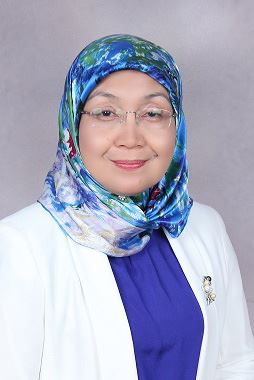 Prof. Dato’ Dr Norazah Nordin is currently the Dean of the Faculty of Education, Universiti Kebangsaan Malaysia (UKM) (Malaysia National University). She is a professor in ICT in Education. Her research areas include Massive Online Open Courses, Mobile Learning, Integrating ICT in Education and Lifelong Learning, and Instructional Design in Online Learning. At the national level, she is a committee member of the Critical Agenda Project (CAP)(E-Learning), Ministry of Education, Malaysia and also a member of the Council of Malaysian Public Higher Education Institutions e-Learning Coordinators. She is the co-editor of a book, entitled Mobile-Learning: Malaysian Initiatives & Research Findings, which was published by the Ministry of Education. Her latest projects with the ministry include the development of a prototype of Massive Online Open Courses (MOOCs) and its guidelines, development of the Blended Learning Standard and Rubrics and the review of the National e-Learning Policy. She is also one of the co-founders and the President of the Mobile Learning Association of Malaysia. At the university level, she is a committee member of the UKM ICT Council, which is responsible of promoting Mobile Learning, Blended Learning and Flipped Classroom. Her current projects are the development of MOOC on Ethnic Relation Course, which is one of the national agenda, the development of UKM courses in iTunes U and iBook initiatives with Apple Education Development, Malaysia. She is also an active member of Asia-Europe Meeting (ASEM) Lifelong Learning Hub-ICT Culture. Prof. Dato’ Dr Norazah Nordin is currently the Dean of the Faculty of Education, Universiti Kebangsaan Malaysia (UKM) (Malaysia National University). She is a professor in ICT in Education. Her research areas include Massive Online Open Courses, Mobile Learning, Integrating ICT in Education and Lifelong Learning, and Instructional Design in Online Learning. At the national level, she is a committee member of the Critical Agenda Project (CAP)(E-Learning), Ministry of Education, Malaysia and also a member of the Council of Malaysian Public Higher Education Institutions e-Learning Coordinators. She is the co-editor of a book, entitled Mobile-Learning: Malaysian Initiatives & Research Findings, which was published by the Ministry of Education. Her latest projects with the ministry include the development of a prototype of Massive Online Open Courses (MOOCs) and its guidelines, development of the Blended Learning Standard and Rubrics and the review of the National e-Learning Policy. She is also one of the co-founders and the President of the Mobile Learning Association of Malaysia. At the university level, she is a committee member of the UKM ICT Council, which is responsible of promoting Mobile Learning, Blended Learning and Flipped Classroom. Her current projects are the development of MOOC on Ethnic Relation Course, which is one of the national agenda, the development of UKM courses in iTunes U and iBook initiatives with Apple Education Development, Malaysia. She is also an active member of Asia-Europe Meeting (ASEM) Lifelong Learning Hub-ICT Culture.
|
As the world is experiencing the pandemic, current teaching and learning practices have shifted from face-to-face education into digital and online learning. Digital learning involves synchronous and asynchronous modes of teaching and learning – yet – are universities prepared for it? Although blended learning is usually implemented in higher education, are we really ready to move towards digital learning? This session will discuss these issues and propose approaches in designing teaching and learning during the pandemic.
|
|
|
Dr Helmi Norman
Session 204: How to Develop Digital Learning Content using iPads
April 23 at 2:00 AM EDT (50 minutes) Local Time
|
|
 Ts. Dr. Helmi Norman is currently the Deputy Director of Teaching Innovation and Learning Technologies for the Center of Teaching and Curriculum Development, Universiti Kebangsaan Malaysia (National University of Malaysia or UKM). He is also a Senior Lecturer/Assistant Professor at the Department of Teaching and Learning Innovations, Faculty of Education, UKM. Previously, he was the Assistant Dean of Teaching and Citra, and e-Learning Coordinator for the faculty. He is an Apple Distinguished Educator and Apple Professional Learning Specialist where he is involved in national projects for primary, secondary, and higher education. He is an advocator and influencer in both national and global landscapes where he coached iPads for medical and healthcare staff in Bangkok, Thailand in collaboration with medical experts from across Europe and Asia. He has also given keynote addresses, talks, and workshops on integration of Apple ecosystem in teaching and learning environments. Notably, he was appointed as a master trainer for training lecturers and professors in higher education nationwide in the Educator 4.0 project, to develop education technology champions among professors and lecturers nationwide. He was also appointed as a visiting scholar at the Swartz Center for Computational Neuroscience, University of California San Diego, USA, in 2014. In late 2014, he was awarded a visiting post-doctoral fellowship by Erasmus Mundus at the Faculty of Science and Technology, Bournemouth University (BU), United Kingdom. He is also a certified Professional Technologist of the Malaysian Board of Technologists and promotes “dronagogy” for integration of drones in education. Ts. Dr. Helmi Norman is currently the Deputy Director of Teaching Innovation and Learning Technologies for the Center of Teaching and Curriculum Development, Universiti Kebangsaan Malaysia (National University of Malaysia or UKM). He is also a Senior Lecturer/Assistant Professor at the Department of Teaching and Learning Innovations, Faculty of Education, UKM. Previously, he was the Assistant Dean of Teaching and Citra, and e-Learning Coordinator for the faculty. He is an Apple Distinguished Educator and Apple Professional Learning Specialist where he is involved in national projects for primary, secondary, and higher education. He is an advocator and influencer in both national and global landscapes where he coached iPads for medical and healthcare staff in Bangkok, Thailand in collaboration with medical experts from across Europe and Asia. He has also given keynote addresses, talks, and workshops on integration of Apple ecosystem in teaching and learning environments. Notably, he was appointed as a master trainer for training lecturers and professors in higher education nationwide in the Educator 4.0 project, to develop education technology champions among professors and lecturers nationwide. He was also appointed as a visiting scholar at the Swartz Center for Computational Neuroscience, University of California San Diego, USA, in 2014. In late 2014, he was awarded a visiting post-doctoral fellowship by Erasmus Mundus at the Faculty of Science and Technology, Bournemouth University (BU), United Kingdom. He is also a certified Professional Technologist of the Malaysian Board of Technologists and promotes “dronagogy” for integration of drones in education.
|
It's a cliché to think that it is difficult to create digital content for learning. This session is aimed in making development of learning content look seamless. Experience how easily digital content can be produced on iPads. By the end of the session, attendees will learn how to:
- Create digital drawings and product 2D animations with Keynote
- Compose digital music with Garageband
- Produce video with greenscreen effects using iMovie
|
|
Dr Nor Hafizah Adnan
Session 205: Simulating Learning Experiences using Augmented Reality with Reality Composer
April 23 at 3:00 AM EDT (50 minutes) Local Time
|
|
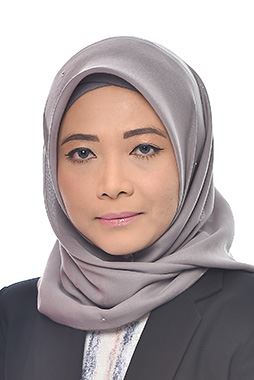 Dr. Nor Hafizah Adnan is currently the
Assistant Dean of Teaching and Cross Curricular Studies at the Faculty of
Education, the National University of Malaysia. She is also an assistant
professor at the Centre for Teaching and Learning Innovation, Faculty of
Education, the National University of Malaysia. Her research interests
include technology enhanced learning environments, augmented reality and
robotics. She is an Apple Teacher and educational technology consultant
for Apple where she is involved in national projects for primary, secondary,
and higher education in promoting 1:1 pedagogical and learning approaches using
the Apple ecosystem. Dr. Nor Hafizah Adnan is currently the
Assistant Dean of Teaching and Cross Curricular Studies at the Faculty of
Education, the National University of Malaysia. She is also an assistant
professor at the Centre for Teaching and Learning Innovation, Faculty of
Education, the National University of Malaysia. Her research interests
include technology enhanced learning environments, augmented reality and
robotics. She is an Apple Teacher and educational technology consultant
for Apple where she is involved in national projects for primary, secondary,
and higher education in promoting 1:1 pedagogical and learning approaches using
the Apple ecosystem.
|
Now educators can quickly prototype,
produce content, and simulate AR learning experiences entirely on iPhone, iPad,
and Mac with Reality Composer. Simply by importing USDZ files or using the
built-in virtual objects in the library, you can customize a virtual object’s
size, style, and more. Add animations that let you scale, move, and add
emphasis like a 'spin' or 'wiggle to virtual objects. You can choose for
actions to happen when a user taps an object, comes in close proximity with it,
or activates some other trigger. You can also take advantage of spatial audio
to add a new level of reality to your AR scene. During the live session, I will
show two different ways in creating and simulating AR learning experiences -
imported 3D models vs built-in models. You can decide which one is easier,
faster and more engaging. |
|
|
Sally Ganci
Session 206: Teaching and Conducting Discussions Online
April 23 at 4:00 AM EDT (25 minutes) Local Time
|
|
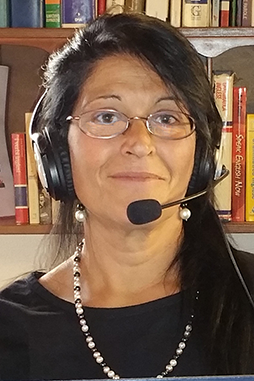 Sally Ganci is a native American English speaker who has has been teaching and tutoring English in Italy for many years, working at company sites and teaching employees at all European standard levels, as well as at private schools and to individuals, in person and online. She teaches from her own manuals, which she expects to publish in the near future. She teaches both American and British English. Sally Ganci is a native American English speaker who has has been teaching and tutoring English in Italy for many years, working at company sites and teaching employees at all European standard levels, as well as at private schools and to individuals, in person and online. She teaches from her own manuals, which she expects to publish in the near future. She teaches both American and British English.
Sally has also been hired many times to translate documents and manuals, and to provide English subtitles in YouTube videos. She helps business professionals prepare for job interviews that will be conducted in English, and to successfully pass the TOEFL, IELTS, and the Cambridge University tests.
Sally also assists Italian companies to correspond and talk with English-speaking individuals worldwide. She is certified to teach English as a Second or Foreign Language at both the A1-A2 European Levels (Beginner-Elementary) and B1-B2 (Intermediate-Upper Intermediate), including needs analysis, syllabus design, lesson planning, classroom management, strategies in language learning, teaching methods, testing and error correction, and more.
In addition to her love for teaching, Sally has a gift for art and loves to paint, sculpt and embroider.
|
How is teaching in a classroom or boardroom different from teaching online? Let us count the ways! Techniques that work when standing in front of a group often fail when teaching online.
What works online? Sally will demonstrate various techniques during this session that will help learners stay focused and engaged.
|
Jena Ball
Session 207: The Avatar in Us All - Lessons from the Virtual Edge
April 23 at 4:30 AM EDT (55 minutes) Local Time
|
|
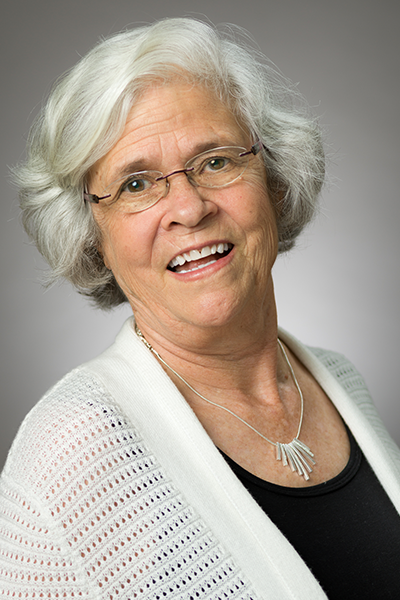 Jena is a multimedia storyteller, educator, and communications specialist with extensive experience crafting content designed to engage, educate, and empower audiences across media platforms. She has worked with a wide range of clients including small businesses, non-profits, schools, and government institutions to develop customized eLearning materials. She is especially proud of her children’s media project, CritterKin, which harnesses the power of social emotional learning (SEL) to challenge both children and adults to discover and develop their communication and creative collaboration skills. Learn more at: http://JenaBall.com Jena is a multimedia storyteller, educator, and communications specialist with extensive experience crafting content designed to engage, educate, and empower audiences across media platforms. She has worked with a wide range of clients including small businesses, non-profits, schools, and government institutions to develop customized eLearning materials. She is especially proud of her children’s media project, CritterKin, which harnesses the power of social emotional learning (SEL) to challenge both children and adults to discover and develop their communication and creative collaboration skills. Learn more at: http://JenaBall.com
|
What is an avatar? How do you create one? Does where you make an avatar matter? How can I use avatars in my classrooms and courses to empower and engage my students? These are just some of the questions we’ll be exploring in this hands-on presentation.
In my 14+ years working in a variety of virtual worlds on a wide range of projects – everything from HIV AIDS education and manufacturing simulations to support groups for veterans with PTSD and those facing physical challenges – I’ve discovered that avatars are some of the most powerful tools in our teaching arsenal. Imagine being unable to move anything but your thumb due to advanced MS (true story) but discovering you can dance, fly, drive cars, and fall in love as an avatar in virtual space. Imagine bringing colleagues from around the world together to discuss and collaborate on a prototype for a new kind of artificial hip. Imagine helping debunk the stereotypes and fear surrounding HIV AIDS by inviting psychology, sociology, medical, and philosophy students to don avatars and into a 3D simulation of the life of someone who lived with HIV. Imagine….well you get the idea.
In our 50 minutes together I will share my experiences, help you create and embody your own avatar, and suggest ways you might incorporate avatars into your courses and classrooms.
|
|
|
Arina Vass
Session 208: How to Create a Mini-game: PowerPoint vs iSpring
April 23 at 5:30 AM EDT (25 minutes) Local Time
|
 Arina is a Technical Support Engineer and a guiding star for iSpringers, both those who have just started using iSpring software and those who are continuously working to improve their eLearning efficiency. Arina is a never-ending source of energy, how-tos, and tips and tricks about creating engaging and effective learning items in the iSpring Suite authoring tool. Arina treats every customer request with great care and knows how to explain complex processes using simple language (in fact, she is sure that nothing is complicated if it’s done with iSpring Suite). She enjoys sharing her experience with everyone who wants to take eLearning to the next level, e.g., she introduced iSpring as a speaker at the Learning Technologies Conference this year, took part in Rick Zanotti's eLearnChat and was a webinar host at HR.com. Arina is a Technical Support Engineer and a guiding star for iSpringers, both those who have just started using iSpring software and those who are continuously working to improve their eLearning efficiency. Arina is a never-ending source of energy, how-tos, and tips and tricks about creating engaging and effective learning items in the iSpring Suite authoring tool. Arina treats every customer request with great care and knows how to explain complex processes using simple language (in fact, she is sure that nothing is complicated if it’s done with iSpring Suite). She enjoys sharing her experience with everyone who wants to take eLearning to the next level, e.g., she introduced iSpring as a speaker at the Learning Technologies Conference this year, took part in Rick Zanotti's eLearnChat and was a webinar host at HR.com. |
Despite some naysayers, games still are quite a powerful way to engage learners and make training content stick in their minds. That’s why we decided to host a session on how to power up your PowerPoint course with a mini game!
In real time, we will show TWO different ways to create a mini game — PowerPoint vs. iSpring Suite — and see which one is faster, easier, and more compelling! :)
During the session, our expert will show you how to build a mini game on a merchandising topic:
- In PowerPoint using triggers and animations
- In iSpring using the top-notch drag-and-drop editor
Join us to find out which way will win the battle!
|
|
Rance Greene
Session 209: Storytelling: the Learning Tool with No Boundaries
April 23 at 6:00 AM EDT (25 minutes) Local Time
|
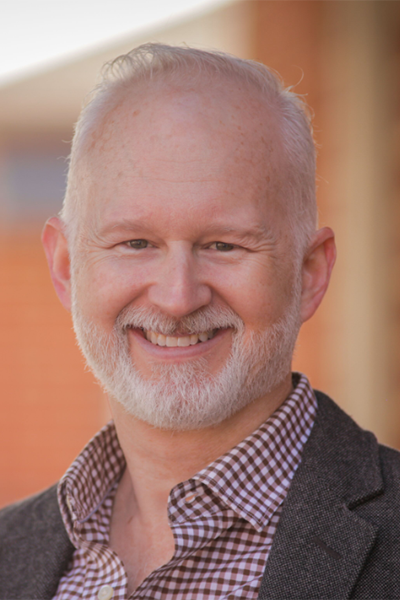 Rance Greene formed needastory.com to help leaders and talent development professionals understand their audience and what they are asking them to do. His story-based business solutions have made him a sought-after speaker and consultant. Rance is privileged to serve beside some of the best leaders and TD professionals in the industry as the President of ATD Dallas. He is the author of Story Design, a practical guide for designing stories for training, published by ATD Press. Rance Greene formed needastory.com to help leaders and talent development professionals understand their audience and what they are asking them to do. His story-based business solutions have made him a sought-after speaker and consultant. Rance is privileged to serve beside some of the best leaders and TD professionals in the industry as the President of ATD Dallas. He is the author of Story Design, a practical guide for designing stories for training, published by ATD Press. |
Stories and training have a common thread that tie them together: action. In stories, we watch the action unfold as the characters do things: observable actions. In training, we’re also asking learners to do things: observable actions. Tying these two action-packed forms together makes for a powerful learning experience. Technology has opened up new possibilities for delivering training in ways that flex to the needs of learners. But as we all know, technology by itself is not instructional design. Likewise, storytelling opens up new possibilities for training that meets learners where they are, both intellectually and emotionally. But random storytelling cannot truly support the learning experience. It also must be designed to do so.
Join this session for a lively discussion about Story Design and its versatile application to blended learning. Whether you’re engaging your learners through eLearning, virtual reality, videos or in-person, Story Design adapts seamlessly to any delivery method, using any technology. This session will get you started on thinking about story-designed blended learning possibilities.
|
|
Pauline Egoshina
Session 210: How to Build a Micro Course with iSpring
April 23 at 6:30 AM EDT (25 minutes) Local Time
|
|
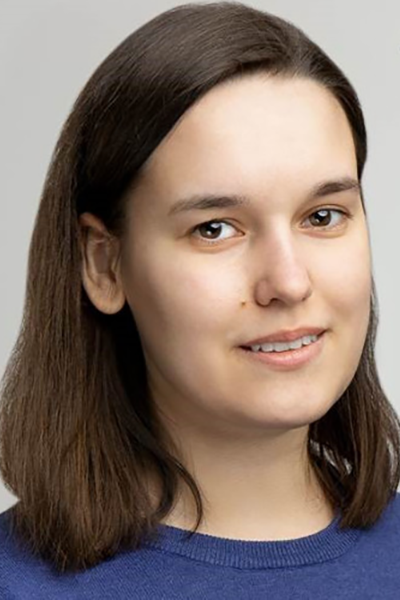 Pauline believes that eLearning has the power to make the process of knowledge delivery easy and eliminate the barriers of time and distance between people who are looking for new ways to share information. Pauline believes that eLearning has the power to make the process of knowledge delivery easy and eliminate the barriers of time and distance between people who are looking for new ways to share information.
Working as a Customer Success Manager at iSpring, an eLearning software company, has allowed Pauline to witness the launching of online learning in many companies in different industries. Pauline is the guru of iSpring Solutions, which is both an LMS and an authoring tool, and she knows exactly how to get any eLearning project off the ground. Pauline is happy to share her experience with those who are taking their first steps in eLearning, as well as with advanced iSpringers. That's why she is appreciated so much by her customers.
|
Let's talk about eLearning “buzzwords” (which are actually great techniques to use!).
This session will be dedicated to microlearning, one of the trending topics. So, if you’ve always wanted to give microlearning a try, now is the time!
During the live session, we will explain what microlearning is, and how to quickly build a micro course with iSpring.
You will learn:
- The general steps to build a micro course
- How to create a micro course with iSpring Suite
After the session, you will be able to build a micro course by yourself using our basic step-by-step instructions.
|
|
Andrew McGuire
Session 211: No LMS Required: Using xAPI to Deliver Results
April 23 at 7:00 AM EDT (25 minutes) Local Time
|
 Andrew McGuire is a learning experience designer at LLamasoft, where he specializes in developing engaging content and tracking learner experiences. He has been working in eLearning development for the past seven years. Before joining the world of eLearning, Andrew taught English at the college level for seven years. He has an MA in English composition from Northeastern Illinois University. Andrew McGuire is a learning experience designer at LLamasoft, where he specializes in developing engaging content and tracking learner experiences. He has been working in eLearning development for the past seven years. Before joining the world of eLearning, Andrew taught English at the college level for seven years. He has an MA in English composition from Northeastern Illinois University. |
Are you looking for ways to meet people where they are at? Do you have an interest in providing learning content outside of your LMS, but are concerned about how you will measure it?
I will explain how you can use xAPI to measure engagement with your content and make more informed decisions about content development, resource allocation, delivery methods. I explain the steps I have used with xAPI to collect the data to drive relevant insights that will help us to determine a strategy for the measurement of video interactions. I then show the visualizations of data present to stakeholders that allowed for more informed decisions.
By the end of the session, attendees will be able to:
- Find the resources to make xAPI work for you and/or your organization
- Adopt a process to build an xAPI proof-of-concept that drives value
- Identify the types of data visualizations from xAPI that deliver results
|
|
Lucie Hammond
Session 212: How to Integrate Virtual Reality into Your Blended Learning Mix
April 23 at 7:30 AM EDT (25 minutes) Local Time
|
|
 Lucie Hammond is passionate about technology for humanity. She founded BeingVR to help organisations embrace virtual reality (VR) for human connection, engagement and training. Lucie Hammond is passionate about technology for humanity. She founded BeingVR to help organisations embrace virtual reality (VR) for human connection, engagement and training.
Lucie has a decade of corporate communications and change experience across Australia and Europe, and post graduate qualifications in business and psychotherapy.
She is a strong advocate for disruption of the education and training industry, and believes in seizing the opportunity the Fourth Industrial Revolution brings to up-skill and re-skill humanity to create more sustainable living.
The World Economic Forum (WEF) warns fifty percent of talent will need to be re-skilled to adapt to a digitised workforce, with human skills highlighted as most sought after and transferrable for future work. This human differentiator is what inspires Lucie to approach training differently.
Lucie is a 2016 graduate of Silicon Valley’s tech accelerator, The Founder Institute, and an active participant in the start-up ecosystem in Australia. She was a finalist in the Duke of York, Prince Andrew’s Pitch at Palace competition in Sydney 2017, and is an ambassador for Women in Technology, Western Australia (WiTWA). She was recognised as one of Techboard's Highest Trending Female Founded Start up and Tech Companies of 2017 and is a member of The Speakers’ Institute, The global VRAR association, and Women in Immersive Tech.
|
With the relatively recent application of virtual reality (VR) to the education and training industry we have seen early adopters, both enterprise and third-party training providers, look to VR as a tool to complement and enhance learning outcomes, engagement, and knowledge transfer from classroom to on-the-job performance.
Lucie Hammond will talk to her experience, failures and learnings in humansing technology for blended learning purposes, including reference to BeingVR’s Unconscious Bias in Virtual Reality workshop, which involved designing a scaffolded learning strategy and building on traditional presentation style delivery to include interactive multimodal activities, simulations and facilitated peer discussion.
|
|
Dr. Susan Ruckdeschel, Chrysoula Lazou
Session 213: Digital and Information Literacy for Increased Reading Achievement and Responsible Citizenship in the 21st Century
April 23 at 8:00 AM EDT (50 minutes) Local Time
|
|
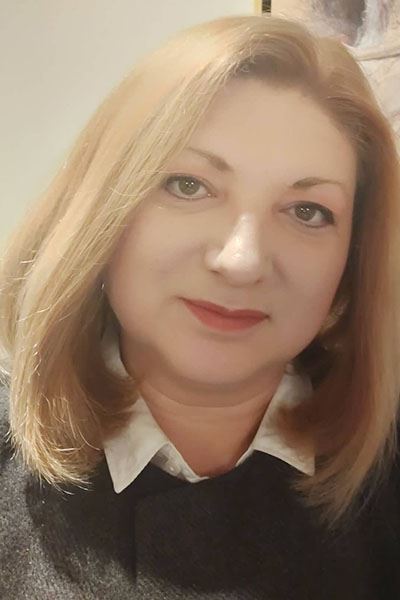 Chrysoula (Chryssa) Lazou is an EFL educator in the public sector,(Hellenic Ministry of Education). She holds a Bachelor Degree in English Language and Literature, Aristotle University of Thessaloniki and a Master's of Education in Distance Education, Athabasca University, Canada's Open University. Chryssa is EnEAGK' s, the Association of English Language Teachers of Kavala, Northern Greece, ex-president, (IABL member of the Communications and Membership Committee), an IVLP participant and U.S. programs alumna with a specialization in cultural awareness and inclusive leadership and practices in education and community. Chryssa participates as a presenter and inspirer in national and international conferences and workshops and she has facilitated MOOC courses with international students. Her teaching practices are based on the Universal Design for Learning principles, involve the incorporation of new technologies and project-based learning on various fields, leveraging CLIL method and blended learning. Her most recent U.S. program participation and project implementation involves AlumniTIES Seminars that took place in Kyiv in October 2018 (with the participation of 43 educators and librarians from 25 countries from Europe and Eurasia) with a specialization in media literacy and critical thinking in the digital age. In 2017 she was a Northern Lights Award recipient and in 2019 a World Learning grant recipient. Chrysoula (Chryssa) Lazou is an EFL educator in the public sector,(Hellenic Ministry of Education). She holds a Bachelor Degree in English Language and Literature, Aristotle University of Thessaloniki and a Master's of Education in Distance Education, Athabasca University, Canada's Open University. Chryssa is EnEAGK' s, the Association of English Language Teachers of Kavala, Northern Greece, ex-president, (IABL member of the Communications and Membership Committee), an IVLP participant and U.S. programs alumna with a specialization in cultural awareness and inclusive leadership and practices in education and community. Chryssa participates as a presenter and inspirer in national and international conferences and workshops and she has facilitated MOOC courses with international students. Her teaching practices are based on the Universal Design for Learning principles, involve the incorporation of new technologies and project-based learning on various fields, leveraging CLIL method and blended learning. Her most recent U.S. program participation and project implementation involves AlumniTIES Seminars that took place in Kyiv in October 2018 (with the participation of 43 educators and librarians from 25 countries from Europe and Eurasia) with a specialization in media literacy and critical thinking in the digital age. In 2017 she was a Northern Lights Award recipient and in 2019 a World Learning grant recipient.
 Dr. Susan Ruckdeschel has over 25 years of teaching and administrative experience in K-12 public schools, higher education, and private educational institutions. With 16 years of experience in publishing, curriculum writing, instructional design, and online course instruction, she recently founded Blended by Design, a service provider for blended instructional design and K-12 student curriculum. Her doctoral study, completed in 2017, is titled, “The Efficacy of Blended Learning Models of Teacher Professional Development”. Susan also researched and had published “Peer Coaching for Adolescent Writers” (Corwin Press, 2010), a student writing handbook for teachers. Susan is also founder and former CEO of Literacy Solutions and more, Inc., where she wrote, edited, and led the design of over 400 online courses for school districts and teachers throughout the United States. Her research continues to focus on digital literacy and use of evidence-based practices that impact curriculum and instruction. Dr. Susan Ruckdeschel has over 25 years of teaching and administrative experience in K-12 public schools, higher education, and private educational institutions. With 16 years of experience in publishing, curriculum writing, instructional design, and online course instruction, she recently founded Blended by Design, a service provider for blended instructional design and K-12 student curriculum. Her doctoral study, completed in 2017, is titled, “The Efficacy of Blended Learning Models of Teacher Professional Development”. Susan also researched and had published “Peer Coaching for Adolescent Writers” (Corwin Press, 2010), a student writing handbook for teachers. Susan is also founder and former CEO of Literacy Solutions and more, Inc., where she wrote, edited, and led the design of over 400 online courses for school districts and teachers throughout the United States. Her research continues to focus on digital literacy and use of evidence-based practices that impact curriculum and instruction.
|
A review of the literature examined the reading habits of children and young adults; their general attitudes and habits employed when reading digital print, employing digital literacy skills, and seeking out information on the World Wide Web. Strategy variances in reading digital versus traditional print and the overall effect on functional literacy were explored, including reading and writing for social and multi-media. The review culminates with a range of recommended strategies and approaches for teaching and learning along a literacy spectrum that includes speed, comprehension, and how information is stored and managed visually and cognitively. In further support to this, the findings of a project realized in two schools in Northern Greece on critical thinking and media literacy for teenagers through CLIL method on blended learning environments are discussed. The project is based on a proposal submitted to World Learning in Washington, with the intent to enhance opportunities for teenagers to discern quality in information both in its consumption and creation, in the age of produsage. Learning theories were employed to enhance motivation and engagement. A three-phase survey along with in-person interviews were conducted to measure results. Findings from both studies suggested that these projects were of much value to students’ perceptions and attitudes in the digital world. A larger scale implementation is proposed to improve reading skills for all readers, and to facilitate active, sustainable citizenship in the digital age. |
|
Ray Jimenez
Session 214: Two Perspectives on Digital Literacy
April 23 at 9:00 AM EDT (50 minutes) Local Time
|
|
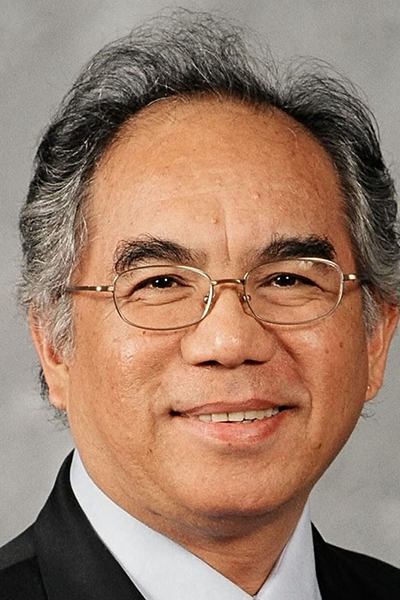 Ray Jimenez is the Chief Learning Architect and Founder of VignettesLearning.com. He designed the principal architecture of TrainingMagNetwork.com, with over 100,000 members. Ray Jimenez is the Chief Learning Architect and Founder of VignettesLearning.com. He designed the principal architecture of TrainingMagNetwork.com, with over 100,000 members.
Ray's passion focuses on helping organizations, learning leaders and learners to apply context-driven and micro-content learning design and delivery. Based on his applied research and work with clients, Ray has developed learning design methodologies and software application that reflect such context-driven learning concepts. The core of his expertise is in Story-Based Learning Designs (SBLD) and Contextual Learning Platforms (CLP). He invented the kernel learning design called "SRIA" - Set up, Relate, Interpret and Apply. SRIA applies to all modalities including micro-elearning and mobile learning.
Ray is the author of the "Story-Based eLearning Design", "3-Minute e-Learning", "Scenario-Based e-Learning", "Do-It-Yourself eLearning" books and several papers and publications. He is a sought-after speaker and thought leader and presents in conferences for ATD, Training Magazine, eLearning Guild, ISPI, DevCon mLearning and others.
|
Many training programs focus on using instruction methods. Learners forget the ideas and fail to apply them while needed at work. Furthermore, the content presented in these programs are never enough to help workers deal with the unexpected or unknown work issues that may surface at work. Consequently, workers' productivity is low and creates negative impacts in the organization. Workflow Learning brings training and learning closer to work. It goes beyond skills training to thinking capacities. Workers deal with real-work issues and learn along the way.
In this session, you will learn:
- What are roadblocks that stop workers and learners to apply training ideas.
- How to bring training and learning closer to work.
- How to use the 5-Step Workflow Learning implementation steps.
- How to use and create thinking capacities by developing thinking tools.
- How to pattern your Workflow Learning solutions from two cases
|
|
Conference Wrap-Up and Announcements
April 23 at 10:00 AM EDT (30 minutes) Local Time
|
http://www.usablelearning.com
|


 Dr. Cleveland-Innes is Professor and Program Director at Athabasca University in Alberta, Canada. She studied the sociology of education at the University of Calgary where she developed her strong views on the importance of high-quality education in the development of citizenry and healthy societies. Her commitment to open and distance learning is rooted in this perspective; education must be accessible, affordable, and of high quality for everyone, anywhere.
Dr. Cleveland-Innes is Professor and Program Director at Athabasca University in Alberta, Canada. She studied the sociology of education at the University of Calgary where she developed her strong views on the importance of high-quality education in the development of citizenry and healthy societies. Her commitment to open and distance learning is rooted in this perspective; education must be accessible, affordable, and of high quality for everyone, anywhere.
 Dr. Susan Ruckdeschel has over 25 years of teaching and administrative experience in K-12 public schools, higher education, and private educational institutions. With 16 years of experience in publishing, curriculum writing, instructional design, and online course instruction, she recently founded Blended by Design, a service provider for blended instructional design and K-12 student curriculum. Her doctoral study, completed in 2017, is titled, “The Efficacy of Blended Learning Models of Teacher Professional Development”. Susan also researched and had published “Peer Coaching for Adolescent Writers” (Corwin Press, 2010), a student writing handbook for teachers.
Dr. Susan Ruckdeschel has over 25 years of teaching and administrative experience in K-12 public schools, higher education, and private educational institutions. With 16 years of experience in publishing, curriculum writing, instructional design, and online course instruction, she recently founded Blended by Design, a service provider for blended instructional design and K-12 student curriculum. Her doctoral study, completed in 2017, is titled, “The Efficacy of Blended Learning Models of Teacher Professional Development”. Susan also researched and had published “Peer Coaching for Adolescent Writers” (Corwin Press, 2010), a student writing handbook for teachers. Dr. Agnieszka (Aga) Palalas, long time teacher and researcher of adult education and educational technologies, has focused for over a decade on exploring and developing blended and mobile learning solutions. Dr. Palalas has been involved in numerous blended learning projects in North America, Ghana and India. Amongst other assignments, she has worked as a Mobile Learning Specialist at George Brown College, Toronto, Canada, as well as in a cross-cultural blended learning project involving Ghana, Canada, and the USA. She is currently teaching graduate courses in m-learning, technology-assisted education, and distance education courses at Athabasca University, Canada, and the University of New Mexico, USA. She is also consulting on mobile and blended learning educational interventions.
Dr. Agnieszka (Aga) Palalas, long time teacher and researcher of adult education and educational technologies, has focused for over a decade on exploring and developing blended and mobile learning solutions. Dr. Palalas has been involved in numerous blended learning projects in North America, Ghana and India. Amongst other assignments, she has worked as a Mobile Learning Specialist at George Brown College, Toronto, Canada, as well as in a cross-cultural blended learning project involving Ghana, Canada, and the USA. She is currently teaching graduate courses in m-learning, technology-assisted education, and distance education courses at Athabasca University, Canada, and the University of New Mexico, USA. She is also consulting on mobile and blended learning educational interventions. Joe Ganci is owner of eLearningJoe, a custom learning company. Since 1983 he has been involved in every aspect of multimedia and learning development. Joe holds a Computer Science degree, writes books and articles about eLearning, and is widely considered a Learning and eLearning guru. Joe consults worldwide and also teaches at conferences and at client sites. He writes tool reviews and is the recipient of several awards for his work in eLearning, including a Lifetime Achievement Award in 1999 and an eLearning GuildMaster Award in 2013. His mission is to improve the quality of eLearning with practical approaches that work.
Joe Ganci is owner of eLearningJoe, a custom learning company. Since 1983 he has been involved in every aspect of multimedia and learning development. Joe holds a Computer Science degree, writes books and articles about eLearning, and is widely considered a Learning and eLearning guru. Joe consults worldwide and also teaches at conferences and at client sites. He writes tool reviews and is the recipient of several awards for his work in eLearning, including a Lifetime Achievement Award in 1999 and an eLearning GuildMaster Award in 2013. His mission is to improve the quality of eLearning with practical approaches that work. Ravindra Yatagiri is an expert in implementing IT Technologies with experience of more than 25 years of diversified experience in information technology strategy as well as implementation of a university-wide computing system, operational leadership and technology enabled learning -providing leadership to the University community. He is also a recipient of the Blackboard Catalyst Award for Optimizing Student Experiences in 2018 and Professional Development in 2019.
Ravindra Yatagiri is an expert in implementing IT Technologies with experience of more than 25 years of diversified experience in information technology strategy as well as implementation of a university-wide computing system, operational leadership and technology enabled learning -providing leadership to the University community. He is also a recipient of the Blackboard Catalyst Award for Optimizing Student Experiences in 2018 and Professional Development in 2019. Dr. Liliana Cuesta Medina is an Associate Professor at the Department of Foreign Languages & Cultures, Universidad de La Sabana (Chía, Colombia) in the Master in Language Teaching –programs. She holds a Ph.D. in English Philology from the Universidad Nacional de Educación a Distancia (UNED-Madrid, Spain), a B.A. in English and Spanish from the Universidad Pedagógica Nacional (Bogotá, Colombia), and a Specialization in Applied Linguistics to the Teaching of English from the Universidad La Gran Colombia (Bogotá, Colombia). She has been involved in national and international teacher development programs, mainly in EFL, e-learning, and e-tutoring. Her research areas include CALL, CLIL, academic writing, teacher education, cyberbullying, and learners’ self-regulation in blended/virtual learning environments, on which topics she has published in a number of indexed journals and conference proceedings.
Dr. Liliana Cuesta Medina is an Associate Professor at the Department of Foreign Languages & Cultures, Universidad de La Sabana (Chía, Colombia) in the Master in Language Teaching –programs. She holds a Ph.D. in English Philology from the Universidad Nacional de Educación a Distancia (UNED-Madrid, Spain), a B.A. in English and Spanish from the Universidad Pedagógica Nacional (Bogotá, Colombia), and a Specialization in Applied Linguistics to the Teaching of English from the Universidad La Gran Colombia (Bogotá, Colombia). She has been involved in national and international teacher development programs, mainly in EFL, e-learning, and e-tutoring. Her research areas include CALL, CLIL, academic writing, teacher education, cyberbullying, and learners’ self-regulation in blended/virtual learning environments, on which topics she has published in a number of indexed journals and conference proceedings. Dr. Norine Wark, Dr. Shamini Ramanujan, and Apostolos Koutropoulos (“AK”) are IABL Graduate Student Committee Co-Chairs. Norine and Shamini are graduates and AK is currently a doctoral student of the Athabasca University (AU) Doctor of Education program. Norine is a Member-at-Large on the IABL Board of Directors and a researcher at AU. She received the 2019 Governor General of Canada Gold Award for her work on emerging pedagogies and emerging technologies. Norine has taught at all levels of education in face-to-face, online, and blended learning contexts since the 1980s. Shamini is the Founder and CEO of Strategic HR International Inc. Shamini has designed curriculum, facilitated programs, provided strategic organizational development counsel in corporate and public service sectors using face-to-face, online, and blended learning methods since the 1990s. AK is an alumnus of the University of Massachusetts Boston, with degrees in computer science, business administration, information technology, instructional design, and applied linguistics. He is currently the program manager for the Applied Linguistics online MA program at UMass Boston. He has been engaged with the topic of blended learning since 2008.
Dr. Norine Wark, Dr. Shamini Ramanujan, and Apostolos Koutropoulos (“AK”) are IABL Graduate Student Committee Co-Chairs. Norine and Shamini are graduates and AK is currently a doctoral student of the Athabasca University (AU) Doctor of Education program. Norine is a Member-at-Large on the IABL Board of Directors and a researcher at AU. She received the 2019 Governor General of Canada Gold Award for her work on emerging pedagogies and emerging technologies. Norine has taught at all levels of education in face-to-face, online, and blended learning contexts since the 1980s. Shamini is the Founder and CEO of Strategic HR International Inc. Shamini has designed curriculum, facilitated programs, provided strategic organizational development counsel in corporate and public service sectors using face-to-face, online, and blended learning methods since the 1990s. AK is an alumnus of the University of Massachusetts Boston, with degrees in computer science, business administration, information technology, instructional design, and applied linguistics. He is currently the program manager for the Applied Linguistics online MA program at UMass Boston. He has been engaged with the topic of blended learning since 2008. Dr. Kelvin Thompson works to make online and blended learning even better a little bit every day. Kelvin writes, speaks, and consults within the US higher education community. He has also created a number of open resources for use by all based upon his work at the University of Central Florida (e.g., the BlendKit Course, the Teaching Online Pedagogical Repository; the Faculty Seminars in Online Teaching). He also co-hosts the popular “TOPcast: The Teaching Online Podcast.” As executive director of UCF’s Center for Distributed Learning, he assures the successful operation and strategic goal meeting of this 80 member organization.
Dr. Kelvin Thompson works to make online and blended learning even better a little bit every day. Kelvin writes, speaks, and consults within the US higher education community. He has also created a number of open resources for use by all based upon his work at the University of Central Florida (e.g., the BlendKit Course, the Teaching Online Pedagogical Repository; the Faculty Seminars in Online Teaching). He also co-hosts the popular “TOPcast: The Teaching Online Podcast.” As executive director of UCF’s Center for Distributed Learning, he assures the successful operation and strategic goal meeting of this 80 member organization. Vikas Joshi is a business leader who is passionate about product development and technology entrepreneurship. His mission is to help create software products that make a difference. A key part of that mission is to inspire tech professionals and entrepreneurs to grow and develop. Vikas leads Harbinger Group, a reputed software company with a global customer base. Harbinger Group helps tech companies in building enterprise software products. For e-learning users, the firm markets its own innovative products and provides custom content solutions. Vikas holds two US patents for his inventions at Harbinger in education technology.
Vikas Joshi is a business leader who is passionate about product development and technology entrepreneurship. His mission is to help create software products that make a difference. A key part of that mission is to inspire tech professionals and entrepreneurs to grow and develop. Vikas leads Harbinger Group, a reputed software company with a global customer base. Harbinger Group helps tech companies in building enterprise software products. For e-learning users, the firm markets its own innovative products and provides custom content solutions. Vikas holds two US patents for his inventions at Harbinger in education technology.
 Chris Benz designs and leads the development of technical information to be used and reused effectively and efficiently across instructor-led training, self-paced eLearning, product documentation, help systems, websites, and marketing.
Chris Benz designs and leads the development of technical information to be used and reused effectively and efficiently across instructor-led training, self-paced eLearning, product documentation, help systems, websites, and marketing. Phil Cowcill is senior eLearning specialist at PJ Rules. He started his career in 1983 when he was hired as a technologist at a local college. In 1985 he joined a team to develop Canada's first Interactive Videodisc. He started teaching part-time in 1989, moving to full-time in 1995. He led his class to build one of the first news websites that streamed video in 1996. In 2011 he launched the very first dedicated mobile application development program. Phil retired from full-time teaching in 2015 and moved to working as a contractor with the Department of National Defence as a senior eLearning specialist.
Phil Cowcill is senior eLearning specialist at PJ Rules. He started his career in 1983 when he was hired as a technologist at a local college. In 1985 he joined a team to develop Canada's first Interactive Videodisc. He started teaching part-time in 1989, moving to full-time in 1995. He led his class to build one of the first news websites that streamed video in 1996. In 2011 he launched the very first dedicated mobile application development program. Phil retired from full-time teaching in 2015 and moved to working as a contractor with the Department of National Defence as a senior eLearning specialist. Julie Dirksen is the author of the book Design For How People Learn and an independent consultant and instructional designer who has more than 20 years’ experience creating highly interactive e-Learning experiences for clients ranging from Fortune 500 companies to innovative technology startups to major grant-funded research initiatives. Her focus has been on utilizing the disciplines of educational psychology, neuroscience, change management and persuasive technology to promote and support the improvement of peoples’ lives through sustainable long-term learning and behavioral change. She holds an M.S. degree in Instructional Systems Technology from Indiana University and has also been an adjunct faculty member at the Minneapolis College of Art and Design. She’s happiest whenever she gets to learn something new and you can find her online at
Julie Dirksen is the author of the book Design For How People Learn and an independent consultant and instructional designer who has more than 20 years’ experience creating highly interactive e-Learning experiences for clients ranging from Fortune 500 companies to innovative technology startups to major grant-funded research initiatives. Her focus has been on utilizing the disciplines of educational psychology, neuroscience, change management and persuasive technology to promote and support the improvement of peoples’ lives through sustainable long-term learning and behavioral change. She holds an M.S. degree in Instructional Systems Technology from Indiana University and has also been an adjunct faculty member at the Minneapolis College of Art and Design. She’s happiest whenever she gets to learn something new and you can find her online at 
 Peter Vaka started his career in online learning developing courses for the federal government. He helped pioneer courses for both soft and hard skills including an online course that taught technicians how to solder circuits. Founder of the Learning Retention Company for continuous learning. Currently he is the Chief Learning Officer for Verizon Network Services.
Peter Vaka started his career in online learning developing courses for the federal government. He helped pioneer courses for both soft and hard skills including an online course that taught technicians how to solder circuits. Founder of the Learning Retention Company for continuous learning. Currently he is the Chief Learning Officer for Verizon Network Services. Kassy LaBorie is the principal consultant at Kassy LaBorie Consulting, LLC. She is a speaker, instructional designer, classroom facilitator, and author who specializes in virtual learning, teams, and live online technology. Kassy is passionate about helping organizations, learning teams, and training professionals successfully move to the virtual environment.
Kassy LaBorie is the principal consultant at Kassy LaBorie Consulting, LLC. She is a speaker, instructional designer, classroom facilitator, and author who specializes in virtual learning, teams, and live online technology. Kassy is passionate about helping organizations, learning teams, and training professionals successfully move to the virtual environment. Karen Hyder, online event producer and speaker coach at Kaleidoscope Training and Consulting, has been teaching about technology since 1991, when she delivered instructor-led software courses for Logical Operations.
Karen Hyder, online event producer and speaker coach at Kaleidoscope Training and Consulting, has been teaching about technology since 1991, when she delivered instructor-led software courses for Logical Operations. Debbie Richards, the president of Creative Interactive Ideas, was named one of the most influential people in corporate eLearning for 2018. She works with organizations to design, develop, and deliver immersive learning programs with measurable impact. Passionate about working with and mentoring other learning professionals, Debbie is the president of the Association for Talent Development Houston Chapter and a past ATD national adviser for chapters. She is also the author of Seeing the Possibilities With Augmented Reality, an ATD TD at Work publication.
Debbie Richards, the president of Creative Interactive Ideas, was named one of the most influential people in corporate eLearning for 2018. She works with organizations to design, develop, and deliver immersive learning programs with measurable impact. Passionate about working with and mentoring other learning professionals, Debbie is the president of the Association for Talent Development Houston Chapter and a past ATD national adviser for chapters. She is also the author of Seeing the Possibilities With Augmented Reality, an ATD TD at Work publication. Sherry is a Senior Learning and Development consultant with broad-based skills designing, developing, managing and delivering learning solutions for large-scale projects in these industries: Agriculture, Aviation, Construction, Financial Services, Government, Health Care, Industrial Automation and Services, Information Technology, Retail, Supply Chain Management and Telecommunications.
Sherry is a Senior Learning and Development consultant with broad-based skills designing, developing, managing and delivering learning solutions for large-scale projects in these industries: Agriculture, Aviation, Construction, Financial Services, Government, Health Care, Industrial Automation and Services, Information Technology, Retail, Supply Chain Management and Telecommunications. Janhavi Padture has over 20 years of experience in the Information Technology field with a focus on web development, project management, and marketing. At Harbinger, Janhavi has been involved in strategy, marketing, CRM and new product initiatives. Janhavi has spoken at various industry conferences (including AICC, ASTD, eLearning Guild) and local groups on topics pertaining to online learning. Janhavi holds a Masters degree in Computer Science and an MBA. At the moment, Janhavi works closely with Raptivity customers to bring their voice into the company, helping the product and business strategy to evolve.
Janhavi Padture has over 20 years of experience in the Information Technology field with a focus on web development, project management, and marketing. At Harbinger, Janhavi has been involved in strategy, marketing, CRM and new product initiatives. Janhavi has spoken at various industry conferences (including AICC, ASTD, eLearning Guild) and local groups on topics pertaining to online learning. Janhavi holds a Masters degree in Computer Science and an MBA. At the moment, Janhavi works closely with Raptivity customers to bring their voice into the company, helping the product and business strategy to evolve. Alan Natachu is a Learning Experience Designer at Exact Sciences. He shifted from an artist career, working with the likes of ABC/Disney and the Smithsonian, to a learning and development career when he was hired as a creative (aka technology trainer) at Apple,. He then spent a decade helping Madison College faculty enhance their classroom (face to face, distance and virtual) experiences using systems like Telepresence, Webex Teams and Virtual Reality. He now is creating new experiences with Exact Sciences, an international biomedical company at the forefront of life-changing innovations in cancer diagnostics and precision oncology.
Alan Natachu is a Learning Experience Designer at Exact Sciences. He shifted from an artist career, working with the likes of ABC/Disney and the Smithsonian, to a learning and development career when he was hired as a creative (aka technology trainer) at Apple,. He then spent a decade helping Madison College faculty enhance their classroom (face to face, distance and virtual) experiences using systems like Telepresence, Webex Teams and Virtual Reality. He now is creating new experiences with Exact Sciences, an international biomedical company at the forefront of life-changing innovations in cancer diagnostics and precision oncology. Prof. Dato’ Dr Norazah Nordin is currently the Dean of the Faculty of Education, Universiti Kebangsaan Malaysia (UKM) (Malaysia National University). She is a professor in ICT in Education. Her research areas include Massive Online Open Courses, Mobile Learning, Integrating ICT in Education and Lifelong Learning, and Instructional Design in Online Learning. At the national level, she is a committee member of the Critical Agenda Project (CAP)(E-Learning), Ministry of Education, Malaysia and also a member of the Council of Malaysian Public Higher Education Institutions e-Learning Coordinators. She is the co-editor of a book, entitled Mobile-Learning: Malaysian Initiatives & Research Findings, which was published by the Ministry of Education. Her latest projects with the ministry include the development of a prototype of Massive Online Open Courses (MOOCs) and its guidelines, development of the Blended Learning Standard and Rubrics and the review of the National e-Learning Policy. She is also one of the co-founders and the President of the Mobile Learning Association of Malaysia. At the university level, she is a committee member of the UKM ICT Council, which is responsible of promoting Mobile Learning, Blended Learning and Flipped Classroom. Her current projects are the development of MOOC on Ethnic Relation Course, which is one of the national agenda, the development of UKM courses in iTunes U and iBook initiatives with Apple Education Development, Malaysia. She is also an active member of Asia-Europe Meeting (ASEM) Lifelong Learning Hub-ICT Culture.
Prof. Dato’ Dr Norazah Nordin is currently the Dean of the Faculty of Education, Universiti Kebangsaan Malaysia (UKM) (Malaysia National University). She is a professor in ICT in Education. Her research areas include Massive Online Open Courses, Mobile Learning, Integrating ICT in Education and Lifelong Learning, and Instructional Design in Online Learning. At the national level, she is a committee member of the Critical Agenda Project (CAP)(E-Learning), Ministry of Education, Malaysia and also a member of the Council of Malaysian Public Higher Education Institutions e-Learning Coordinators. She is the co-editor of a book, entitled Mobile-Learning: Malaysian Initiatives & Research Findings, which was published by the Ministry of Education. Her latest projects with the ministry include the development of a prototype of Massive Online Open Courses (MOOCs) and its guidelines, development of the Blended Learning Standard and Rubrics and the review of the National e-Learning Policy. She is also one of the co-founders and the President of the Mobile Learning Association of Malaysia. At the university level, she is a committee member of the UKM ICT Council, which is responsible of promoting Mobile Learning, Blended Learning and Flipped Classroom. Her current projects are the development of MOOC on Ethnic Relation Course, which is one of the national agenda, the development of UKM courses in iTunes U and iBook initiatives with Apple Education Development, Malaysia. She is also an active member of Asia-Europe Meeting (ASEM) Lifelong Learning Hub-ICT Culture.  Ts. Dr. Helmi Norman is currently the Deputy Director of Teaching Innovation and Learning Technologies for the Center of Teaching and Curriculum Development, Universiti Kebangsaan Malaysia (National University of Malaysia or UKM). He is also a Senior Lecturer/Assistant Professor at the Department of Teaching and Learning Innovations, Faculty of Education, UKM. Previously, he was the Assistant Dean of Teaching and Citra, and e-Learning Coordinator for the faculty. He is an Apple Distinguished Educator and Apple Professional Learning Specialist where he is involved in national projects for primary, secondary, and higher education. He is an advocator and influencer in both national and global landscapes where he coached iPads for medical and healthcare staff in Bangkok, Thailand in collaboration with medical experts from across Europe and Asia. He has also given keynote addresses, talks, and workshops on integration of Apple ecosystem in teaching and learning environments. Notably, he was appointed as a master trainer for training lecturers and professors in higher education nationwide in the Educator 4.0 project, to develop education technology champions among professors and lecturers nationwide. He was also appointed as a visiting scholar at the Swartz Center for Computational Neuroscience, University of California San Diego, USA, in 2014. In late 2014, he was awarded a visiting post-doctoral fellowship by Erasmus Mundus at the Faculty of Science and Technology, Bournemouth University (BU), United Kingdom. He is also a certified Professional Technologist of the Malaysian Board of Technologists and promotes “dronagogy” for integration of drones in education.
Ts. Dr. Helmi Norman is currently the Deputy Director of Teaching Innovation and Learning Technologies for the Center of Teaching and Curriculum Development, Universiti Kebangsaan Malaysia (National University of Malaysia or UKM). He is also a Senior Lecturer/Assistant Professor at the Department of Teaching and Learning Innovations, Faculty of Education, UKM. Previously, he was the Assistant Dean of Teaching and Citra, and e-Learning Coordinator for the faculty. He is an Apple Distinguished Educator and Apple Professional Learning Specialist where he is involved in national projects for primary, secondary, and higher education. He is an advocator and influencer in both national and global landscapes where he coached iPads for medical and healthcare staff in Bangkok, Thailand in collaboration with medical experts from across Europe and Asia. He has also given keynote addresses, talks, and workshops on integration of Apple ecosystem in teaching and learning environments. Notably, he was appointed as a master trainer for training lecturers and professors in higher education nationwide in the Educator 4.0 project, to develop education technology champions among professors and lecturers nationwide. He was also appointed as a visiting scholar at the Swartz Center for Computational Neuroscience, University of California San Diego, USA, in 2014. In late 2014, he was awarded a visiting post-doctoral fellowship by Erasmus Mundus at the Faculty of Science and Technology, Bournemouth University (BU), United Kingdom. He is also a certified Professional Technologist of the Malaysian Board of Technologists and promotes “dronagogy” for integration of drones in education. Dr. Nor Hafizah Adnan is currently the
Assistant Dean of Teaching and Cross Curricular Studies at the Faculty of
Education, the National University of Malaysia. She is also an assistant
professor at the Centre for Teaching and Learning Innovation, Faculty of
Education, the National University of Malaysia. Her research interests
include technology enhanced learning environments, augmented reality and
robotics. She is an Apple Teacher and educational technology consultant
for Apple where she is involved in national projects for primary, secondary,
and higher education in promoting 1:1 pedagogical and learning approaches using
the Apple ecosystem.
Dr. Nor Hafizah Adnan is currently the
Assistant Dean of Teaching and Cross Curricular Studies at the Faculty of
Education, the National University of Malaysia. She is also an assistant
professor at the Centre for Teaching and Learning Innovation, Faculty of
Education, the National University of Malaysia. Her research interests
include technology enhanced learning environments, augmented reality and
robotics. She is an Apple Teacher and educational technology consultant
for Apple where she is involved in national projects for primary, secondary,
and higher education in promoting 1:1 pedagogical and learning approaches using
the Apple ecosystem.  Sally Ganci is a native American English speaker who has has been teaching and tutoring English in Italy for many years, working at company sites and teaching employees at all European standard levels, as well as at private schools and to individuals, in person and online. She teaches from her own manuals, which she expects to publish in the near future. She teaches both American and British English.
Sally Ganci is a native American English speaker who has has been teaching and tutoring English in Italy for many years, working at company sites and teaching employees at all European standard levels, as well as at private schools and to individuals, in person and online. She teaches from her own manuals, which she expects to publish in the near future. She teaches both American and British English. Jena is a multimedia storyteller, educator, and communications specialist with extensive experience crafting content designed to engage, educate, and empower audiences across media platforms. She has worked with a wide range of clients including small businesses, non-profits, schools, and government institutions to develop customized eLearning materials. She is especially proud of her children’s media project, CritterKin, which harnesses the power of social emotional learning (SEL) to challenge both children and adults to discover and develop their communication and creative collaboration skills. Learn more at:
Jena is a multimedia storyteller, educator, and communications specialist with extensive experience crafting content designed to engage, educate, and empower audiences across media platforms. She has worked with a wide range of clients including small businesses, non-profits, schools, and government institutions to develop customized eLearning materials. She is especially proud of her children’s media project, CritterKin, which harnesses the power of social emotional learning (SEL) to challenge both children and adults to discover and develop their communication and creative collaboration skills. Learn more at:  Arina is a Technical Support Engineer and a guiding star for iSpringers, both those who have just started using iSpring software and those who are continuously working to improve their eLearning efficiency. Arina is a never-ending source of energy, how-tos, and tips and tricks about creating engaging and effective learning items in the iSpring Suite authoring tool. Arina treats every customer request with great care and knows how to explain complex processes using simple language (in fact, she is sure that nothing is complicated if it’s done with iSpring Suite). She enjoys sharing her experience with everyone who wants to take eLearning to the next level, e.g., she introduced iSpring as a speaker at the Learning Technologies Conference this year, took part in Rick Zanotti's eLearnChat and was a webinar host at HR.com.
Arina is a Technical Support Engineer and a guiding star for iSpringers, both those who have just started using iSpring software and those who are continuously working to improve their eLearning efficiency. Arina is a never-ending source of energy, how-tos, and tips and tricks about creating engaging and effective learning items in the iSpring Suite authoring tool. Arina treats every customer request with great care and knows how to explain complex processes using simple language (in fact, she is sure that nothing is complicated if it’s done with iSpring Suite). She enjoys sharing her experience with everyone who wants to take eLearning to the next level, e.g., she introduced iSpring as a speaker at the Learning Technologies Conference this year, took part in Rick Zanotti's eLearnChat and was a webinar host at HR.com. Rance Greene formed
Rance Greene formed  Pauline believes that eLearning has the power to make the process of knowledge delivery easy and eliminate the barriers of time and distance between people who are looking for new ways to share information.
Pauline believes that eLearning has the power to make the process of knowledge delivery easy and eliminate the barriers of time and distance between people who are looking for new ways to share information. Andrew McGuire is a learning experience designer at LLamasoft, where he specializes in developing engaging content and tracking learner experiences. He has been working in eLearning development for the past seven years. Before joining the world of eLearning, Andrew taught English at the college level for seven years. He has an MA in English composition from Northeastern Illinois University.
Andrew McGuire is a learning experience designer at LLamasoft, where he specializes in developing engaging content and tracking learner experiences. He has been working in eLearning development for the past seven years. Before joining the world of eLearning, Andrew taught English at the college level for seven years. He has an MA in English composition from Northeastern Illinois University. Lucie Hammond is passionate about technology for humanity. She founded BeingVR to help organisations embrace virtual reality (VR) for human connection, engagement and training.
Lucie Hammond is passionate about technology for humanity. She founded BeingVR to help organisations embrace virtual reality (VR) for human connection, engagement and training. Chrysoula (Chryssa) Lazou is an EFL educator in the public sector,(Hellenic Ministry of Education). She holds a Bachelor Degree in English Language and Literature, Aristotle University of Thessaloniki and a Master's of Education in Distance Education, Athabasca University, Canada's Open University. Chryssa is EnEAGK' s, the Association of English Language Teachers of Kavala, Northern Greece, ex-president, (IABL member of the Communications and Membership Committee), an IVLP participant and U.S. programs alumna with a specialization in cultural awareness and inclusive leadership and practices in education and community. Chryssa participates as a presenter and inspirer in national and international conferences and workshops and she has facilitated MOOC courses with international students. Her teaching practices are based on the Universal Design for Learning principles, involve the incorporation of new technologies and project-based learning on various fields, leveraging CLIL method and blended learning. Her most recent U.S. program participation and project implementation involves AlumniTIES Seminars that took place in Kyiv in October 2018 (with the participation of 43 educators and librarians from 25 countries from Europe and Eurasia) with a specialization in media literacy and critical thinking in the digital age. In 2017 she was a Northern Lights Award recipient and in 2019 a World Learning grant recipient.
Chrysoula (Chryssa) Lazou is an EFL educator in the public sector,(Hellenic Ministry of Education). She holds a Bachelor Degree in English Language and Literature, Aristotle University of Thessaloniki and a Master's of Education in Distance Education, Athabasca University, Canada's Open University. Chryssa is EnEAGK' s, the Association of English Language Teachers of Kavala, Northern Greece, ex-president, (IABL member of the Communications and Membership Committee), an IVLP participant and U.S. programs alumna with a specialization in cultural awareness and inclusive leadership and practices in education and community. Chryssa participates as a presenter and inspirer in national and international conferences and workshops and she has facilitated MOOC courses with international students. Her teaching practices are based on the Universal Design for Learning principles, involve the incorporation of new technologies and project-based learning on various fields, leveraging CLIL method and blended learning. Her most recent U.S. program participation and project implementation involves AlumniTIES Seminars that took place in Kyiv in October 2018 (with the participation of 43 educators and librarians from 25 countries from Europe and Eurasia) with a specialization in media literacy and critical thinking in the digital age. In 2017 she was a Northern Lights Award recipient and in 2019 a World Learning grant recipient. Dr. Susan Ruckdeschel has over 25 years of teaching and administrative experience in K-12 public schools, higher education, and private educational institutions. With 16 years of experience in publishing, curriculum writing, instructional design, and online course instruction, she recently founded Blended by Design, a service provider for blended instructional design and K-12 student curriculum. Her doctoral study, completed in 2017, is titled, “The Efficacy of Blended Learning Models of Teacher Professional Development”. Susan also researched and had published “Peer Coaching for Adolescent Writers” (Corwin Press, 2010), a student writing handbook for teachers. Susan is also founder and former CEO of Literacy Solutions and more, Inc., where she wrote, edited, and led the design of over 400 online courses for school districts and teachers throughout the United States. Her research continues to focus on digital literacy and use of evidence-based practices that impact curriculum and instruction.
Dr. Susan Ruckdeschel has over 25 years of teaching and administrative experience in K-12 public schools, higher education, and private educational institutions. With 16 years of experience in publishing, curriculum writing, instructional design, and online course instruction, she recently founded Blended by Design, a service provider for blended instructional design and K-12 student curriculum. Her doctoral study, completed in 2017, is titled, “The Efficacy of Blended Learning Models of Teacher Professional Development”. Susan also researched and had published “Peer Coaching for Adolescent Writers” (Corwin Press, 2010), a student writing handbook for teachers. Susan is also founder and former CEO of Literacy Solutions and more, Inc., where she wrote, edited, and led the design of over 400 online courses for school districts and teachers throughout the United States. Her research continues to focus on digital literacy and use of evidence-based practices that impact curriculum and instruction. Ray Jimenez is the Chief Learning Architect and Founder of
Ray Jimenez is the Chief Learning Architect and Founder of